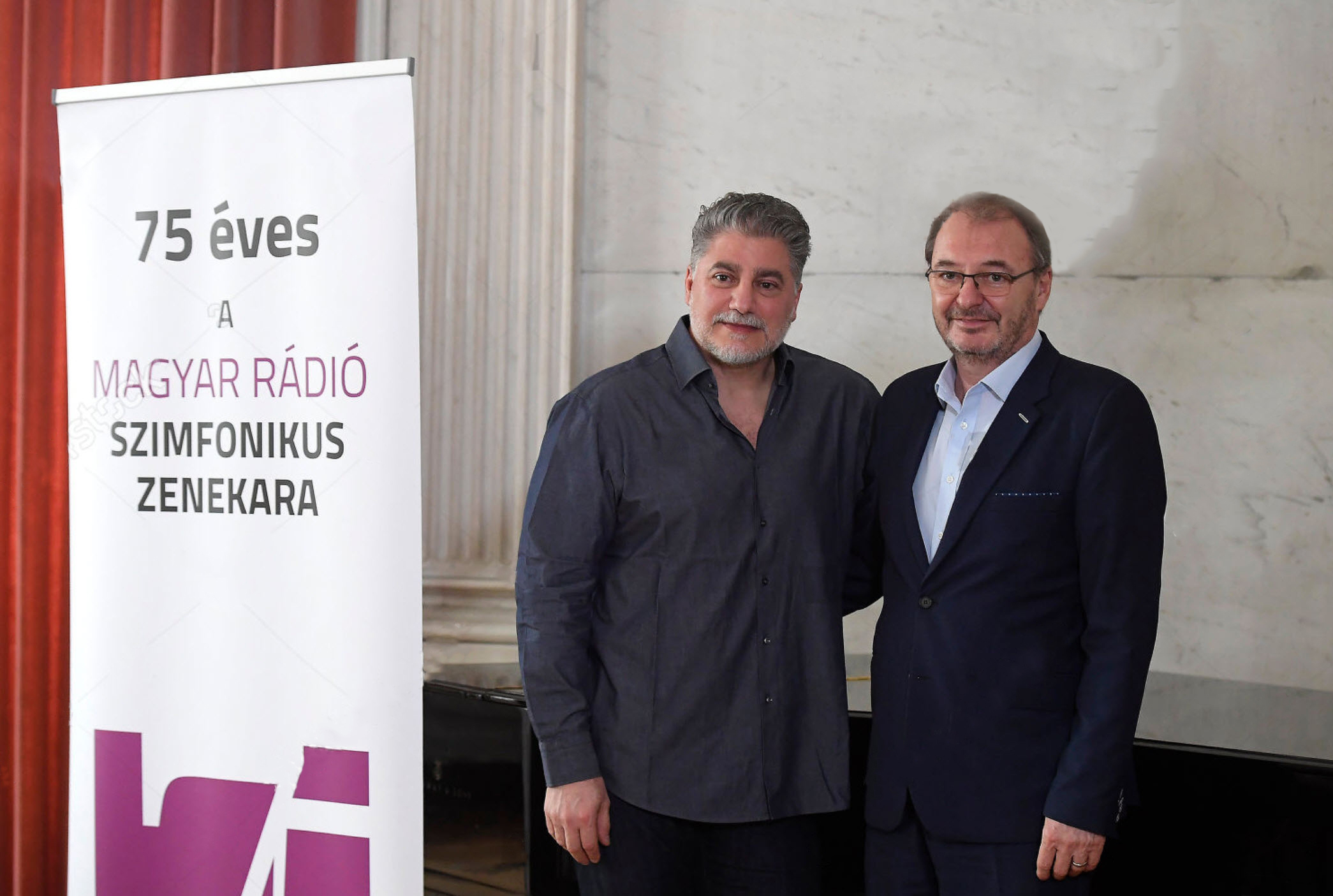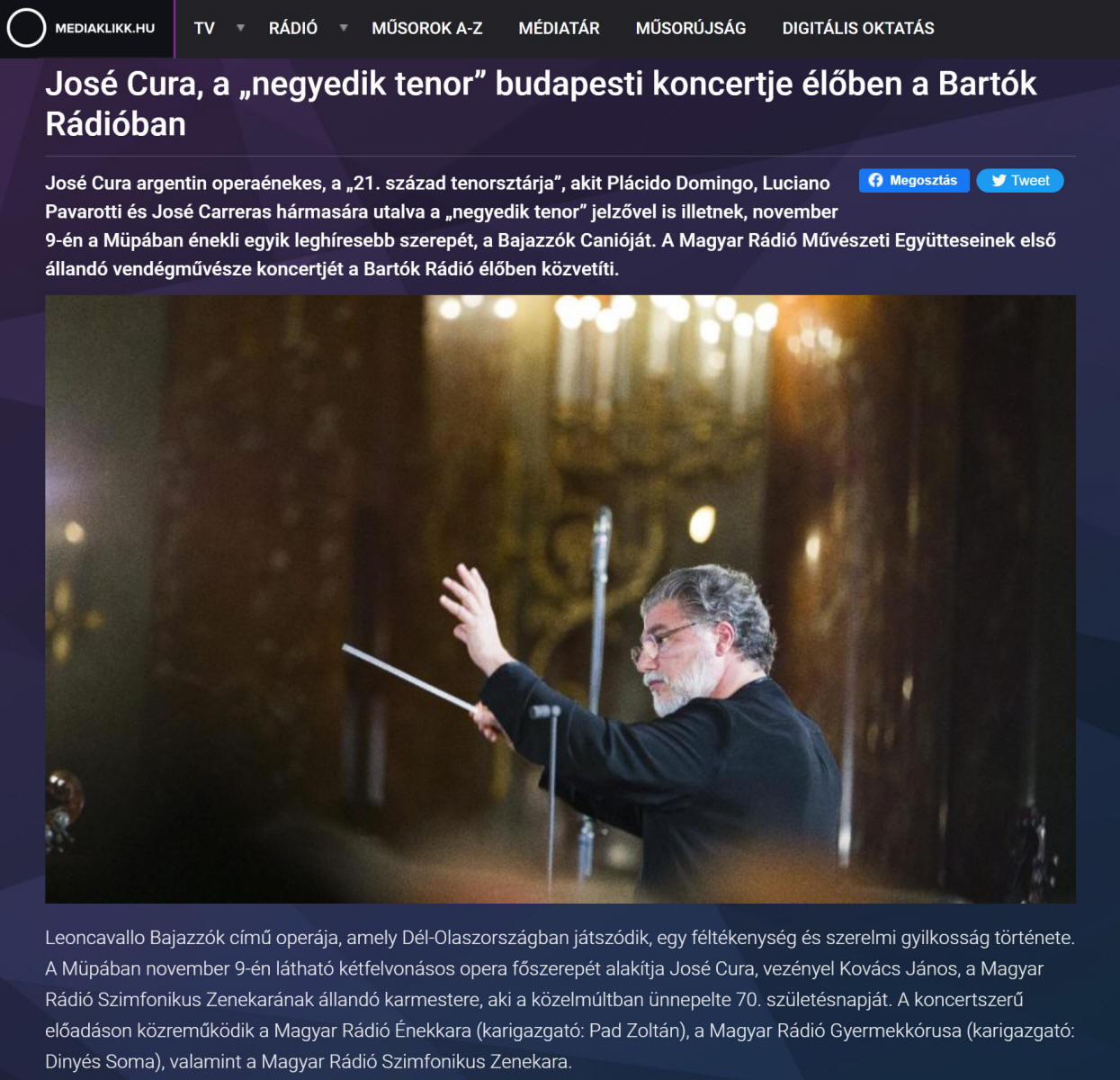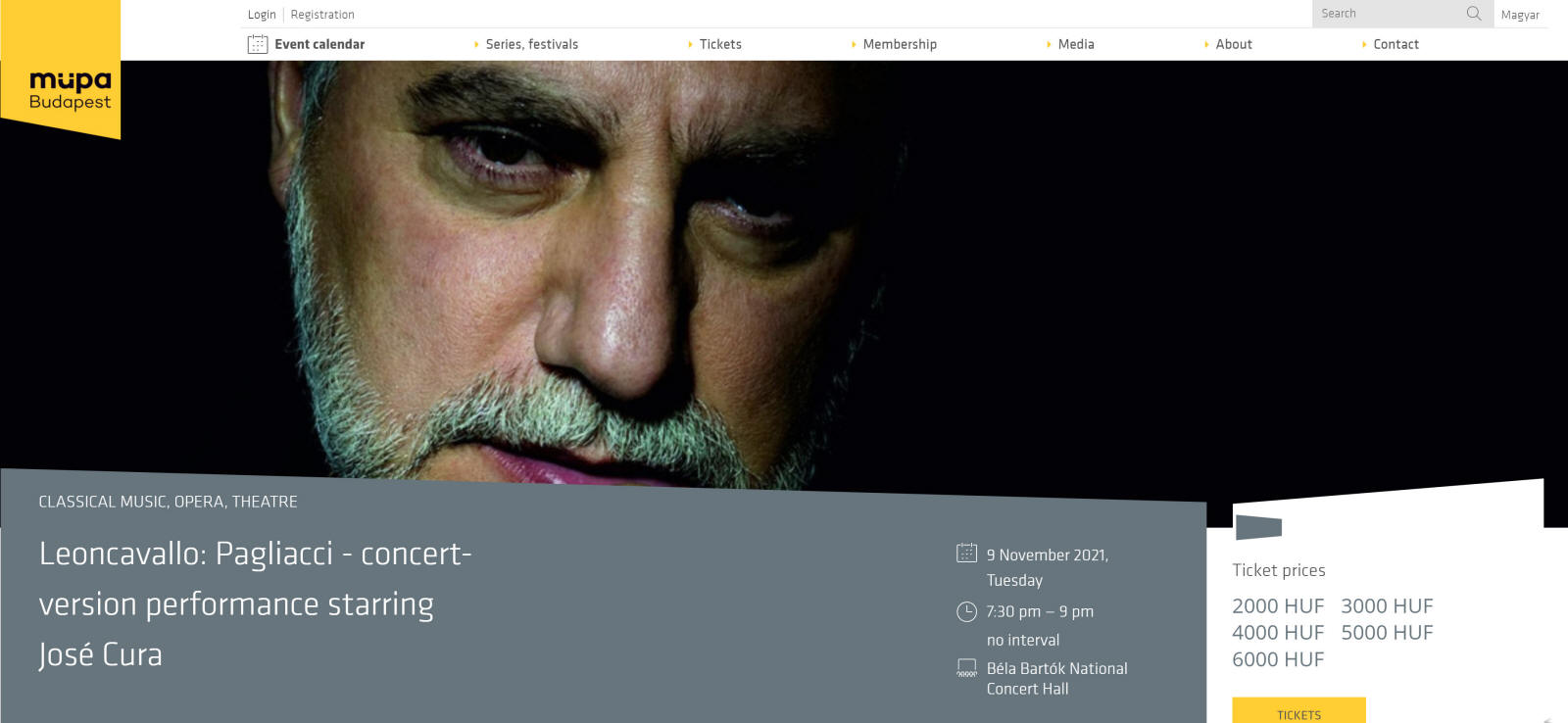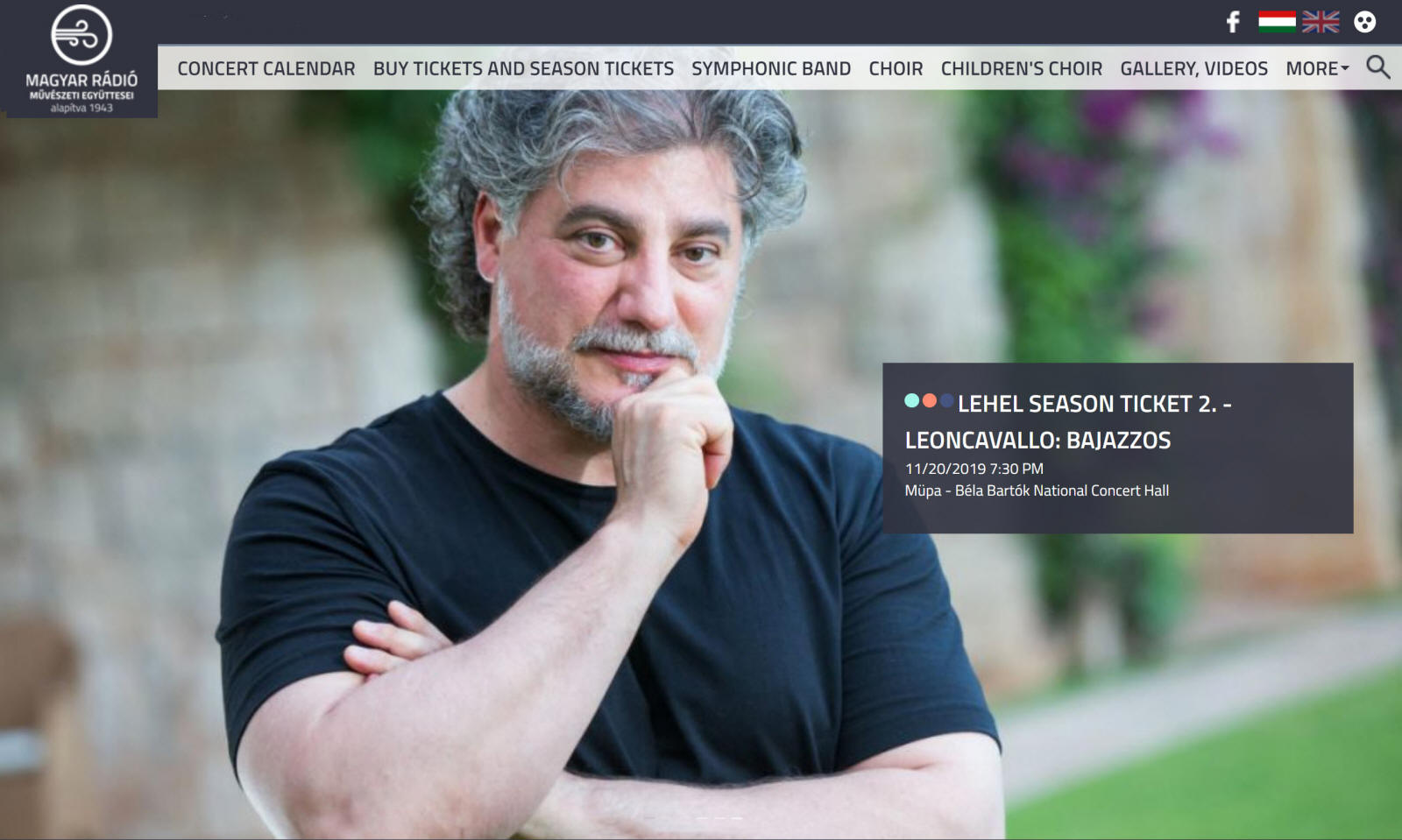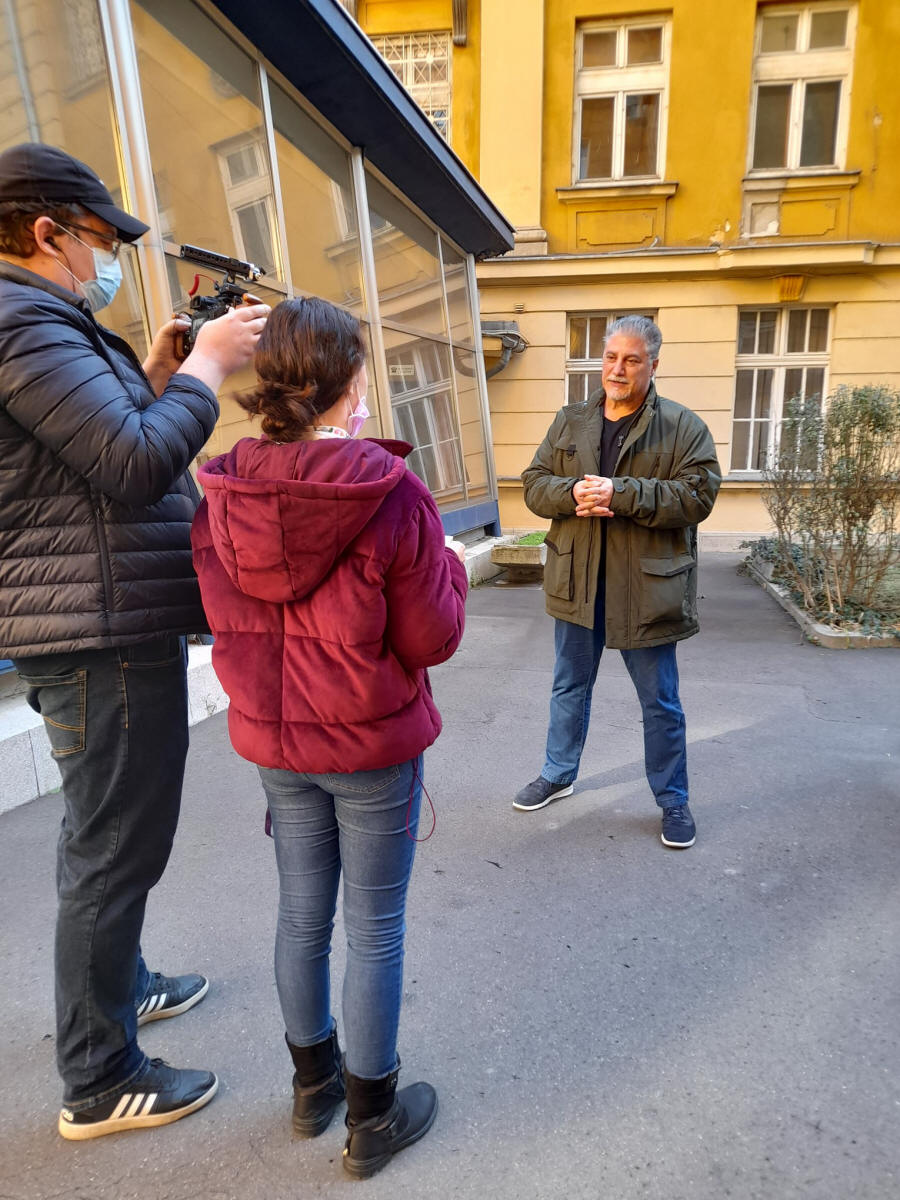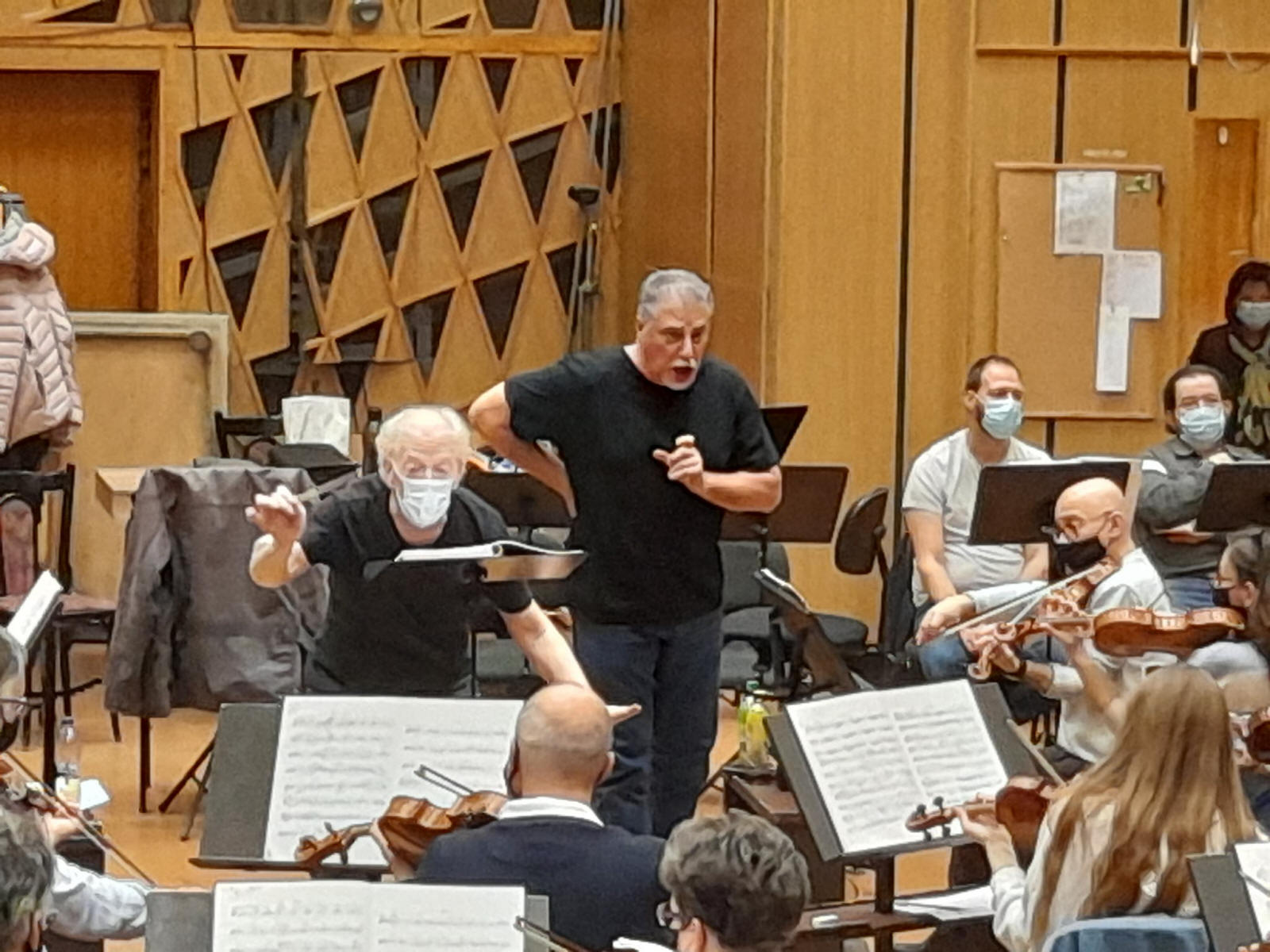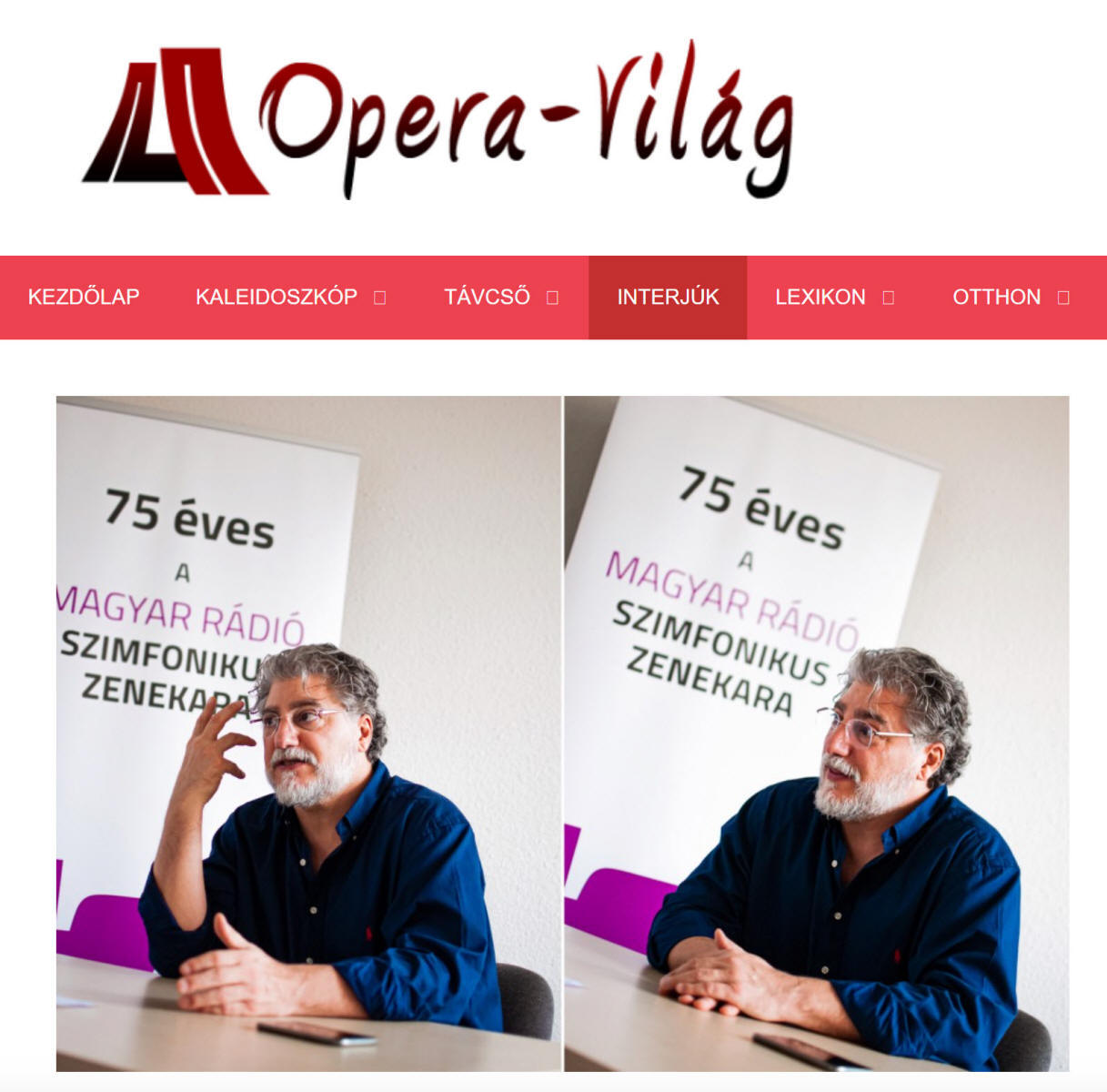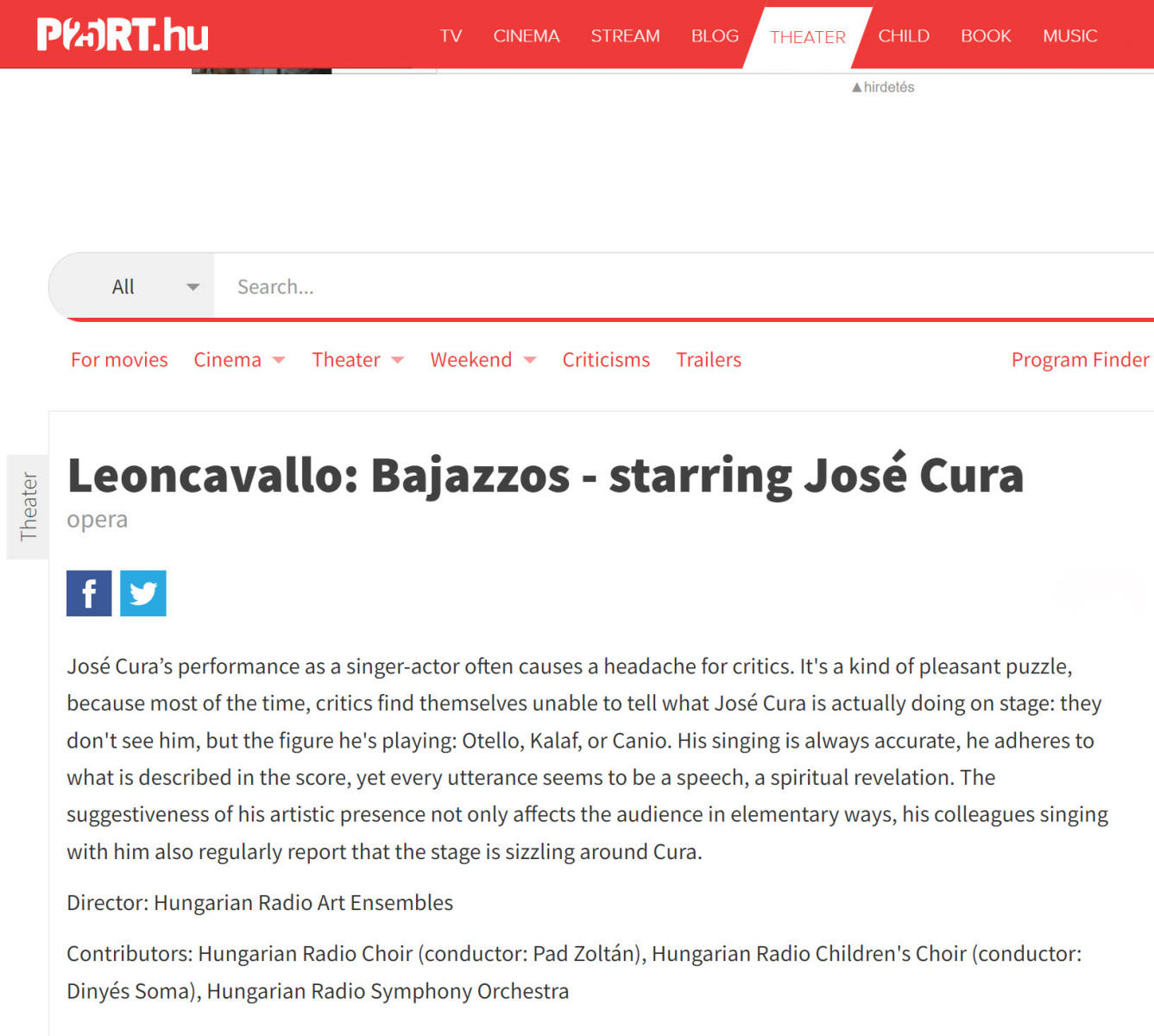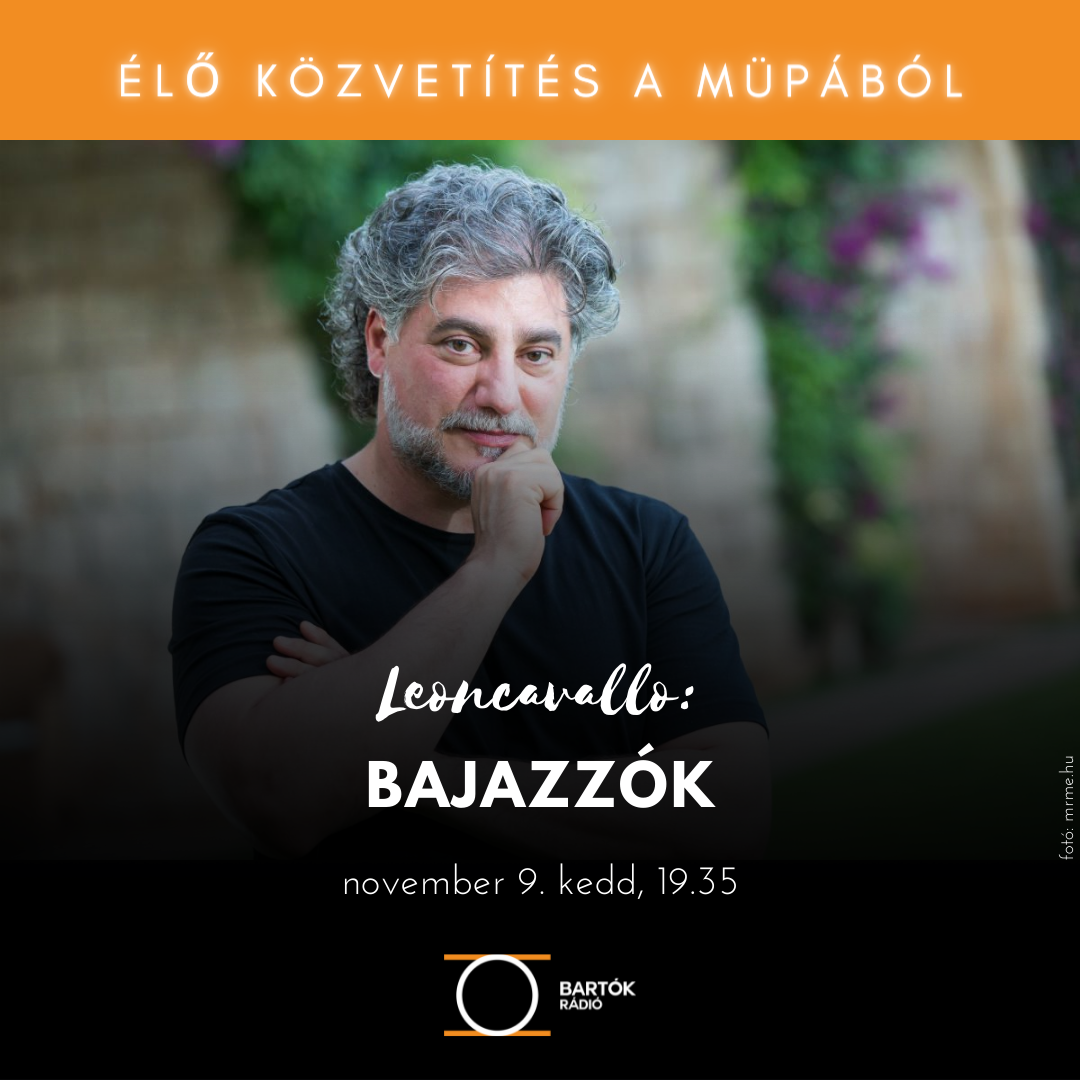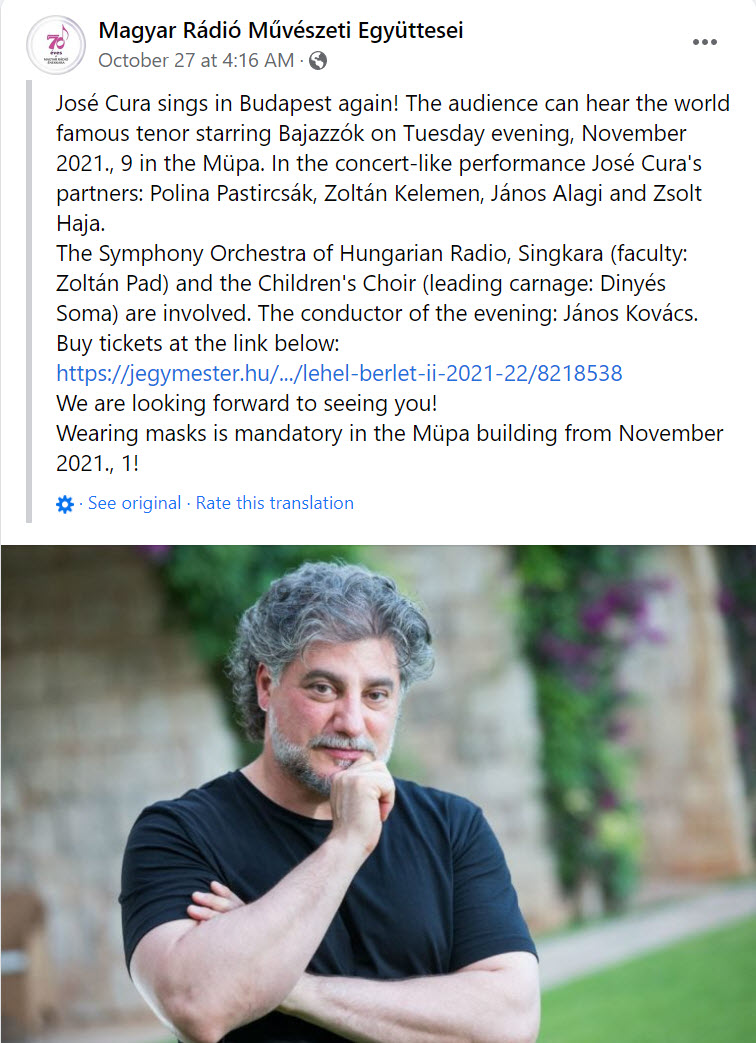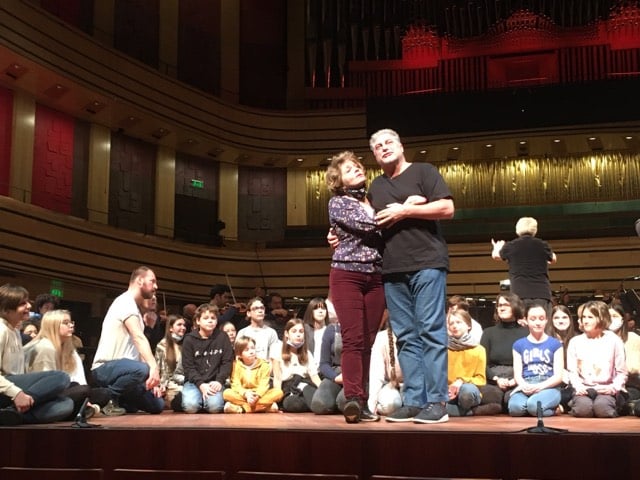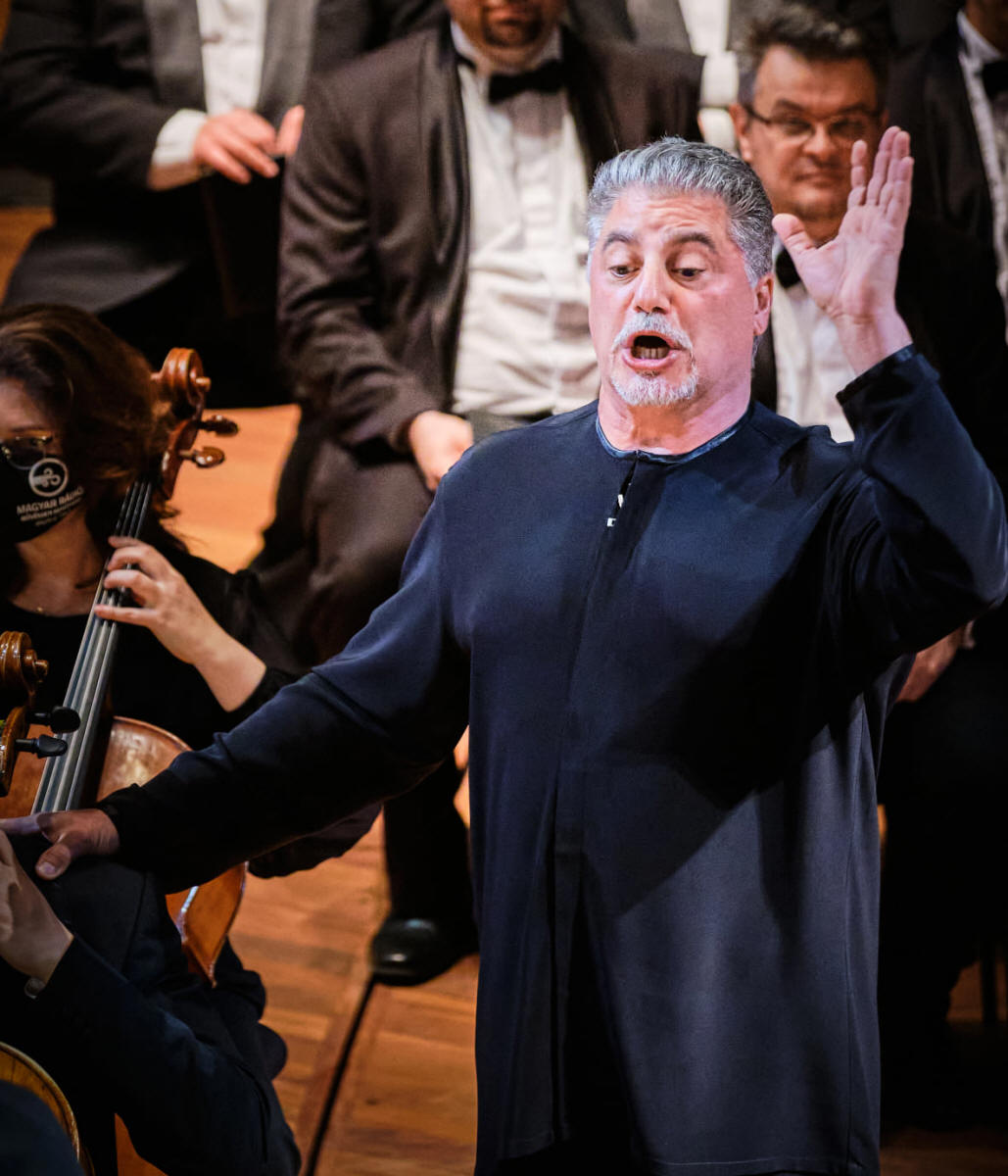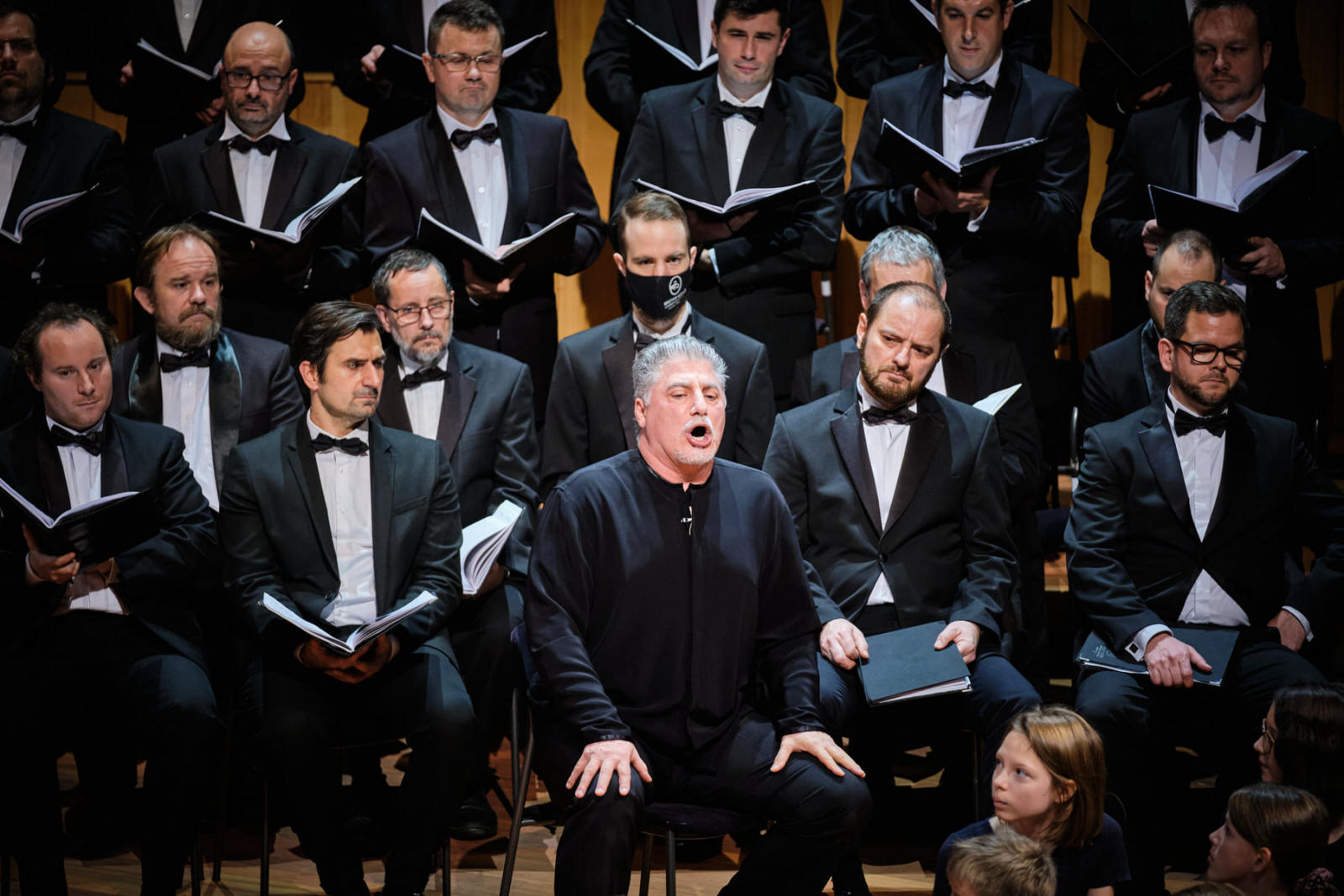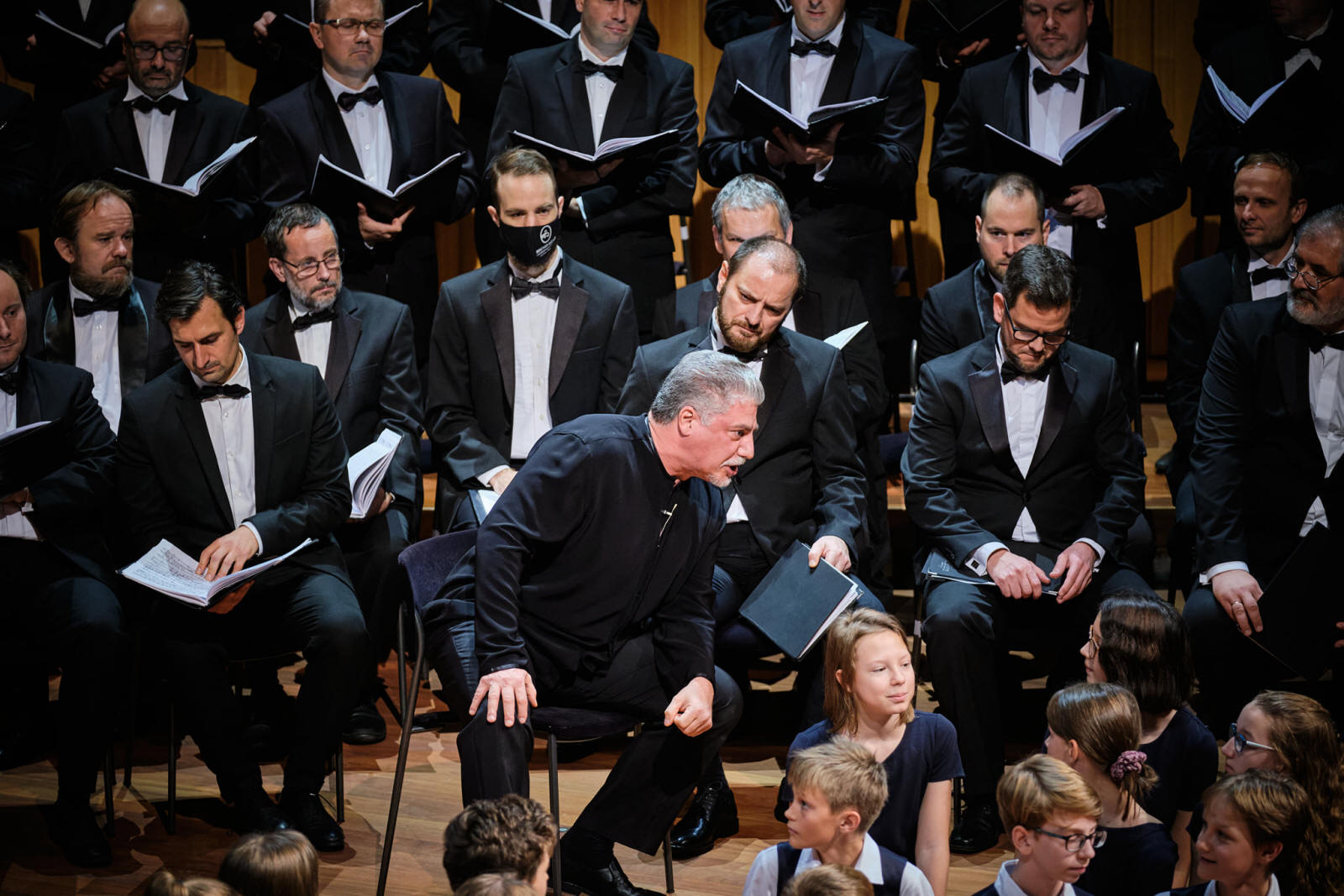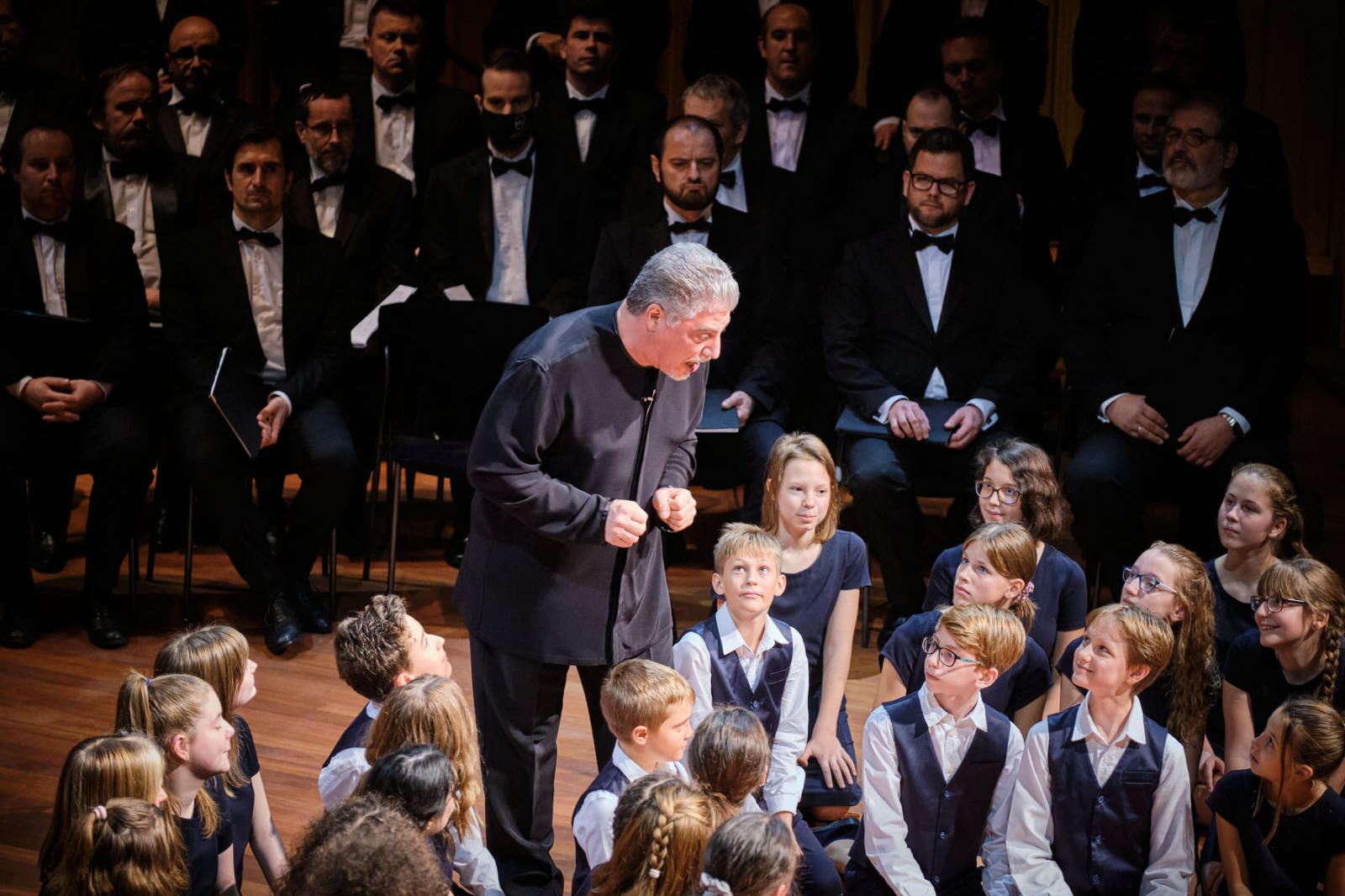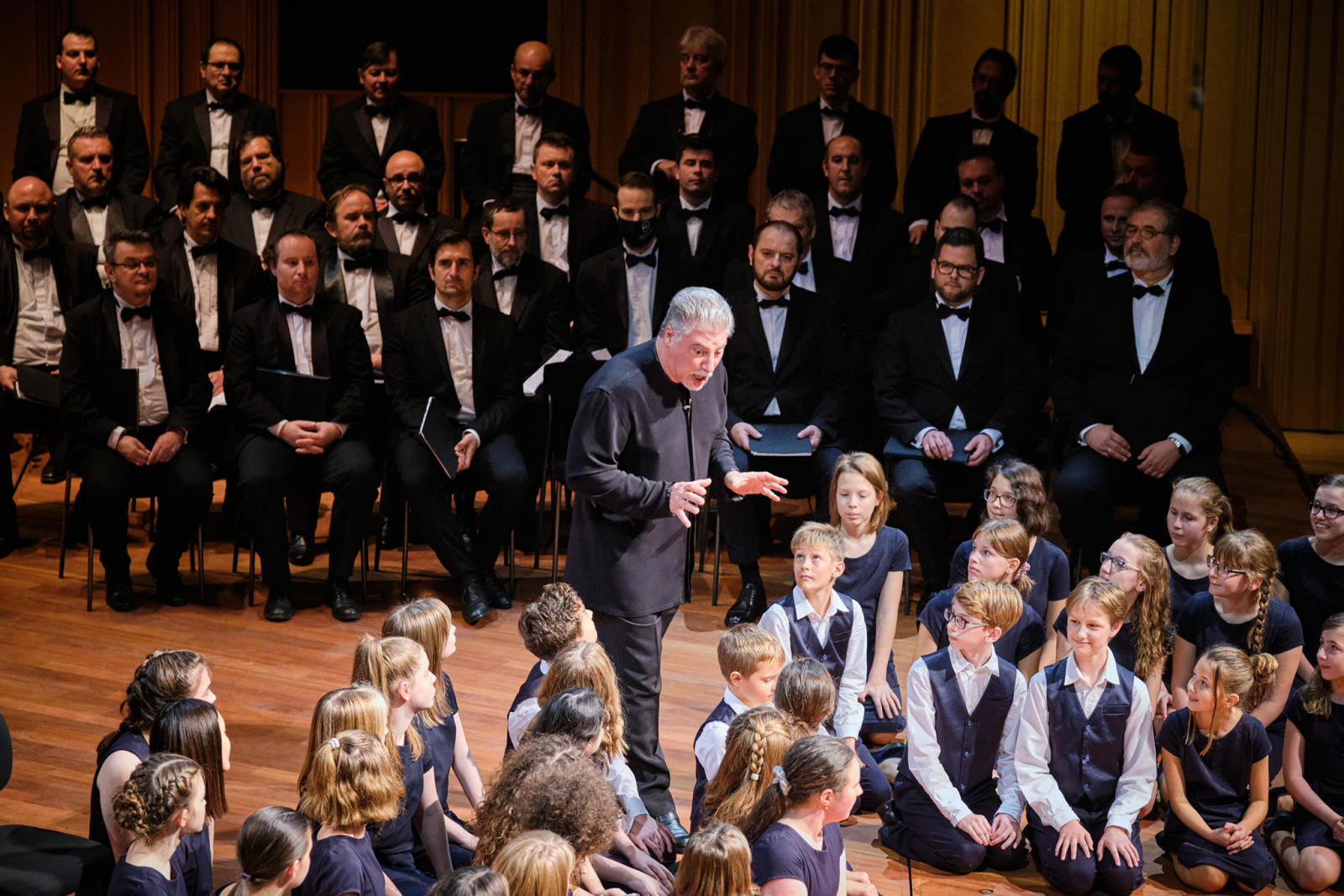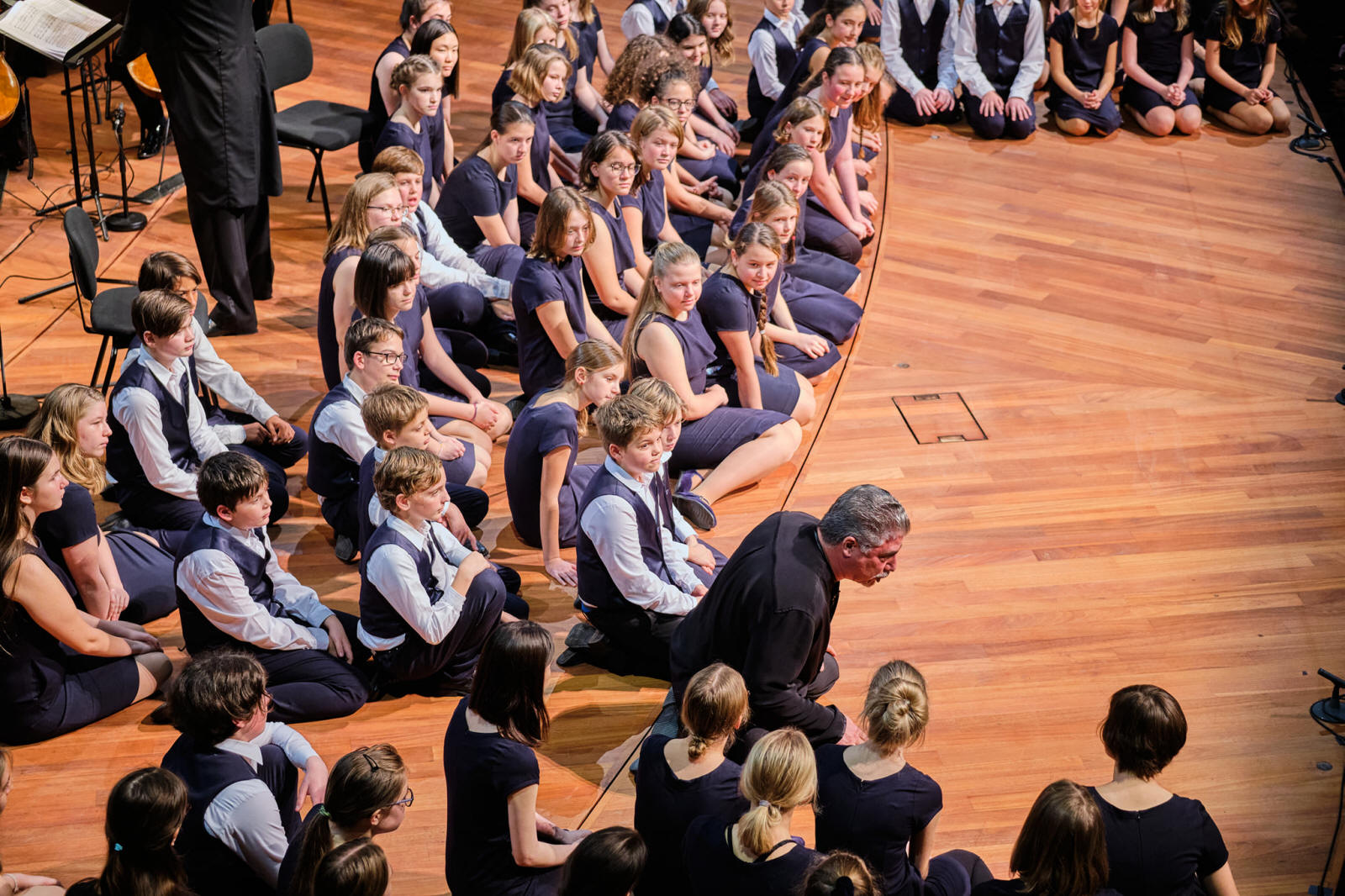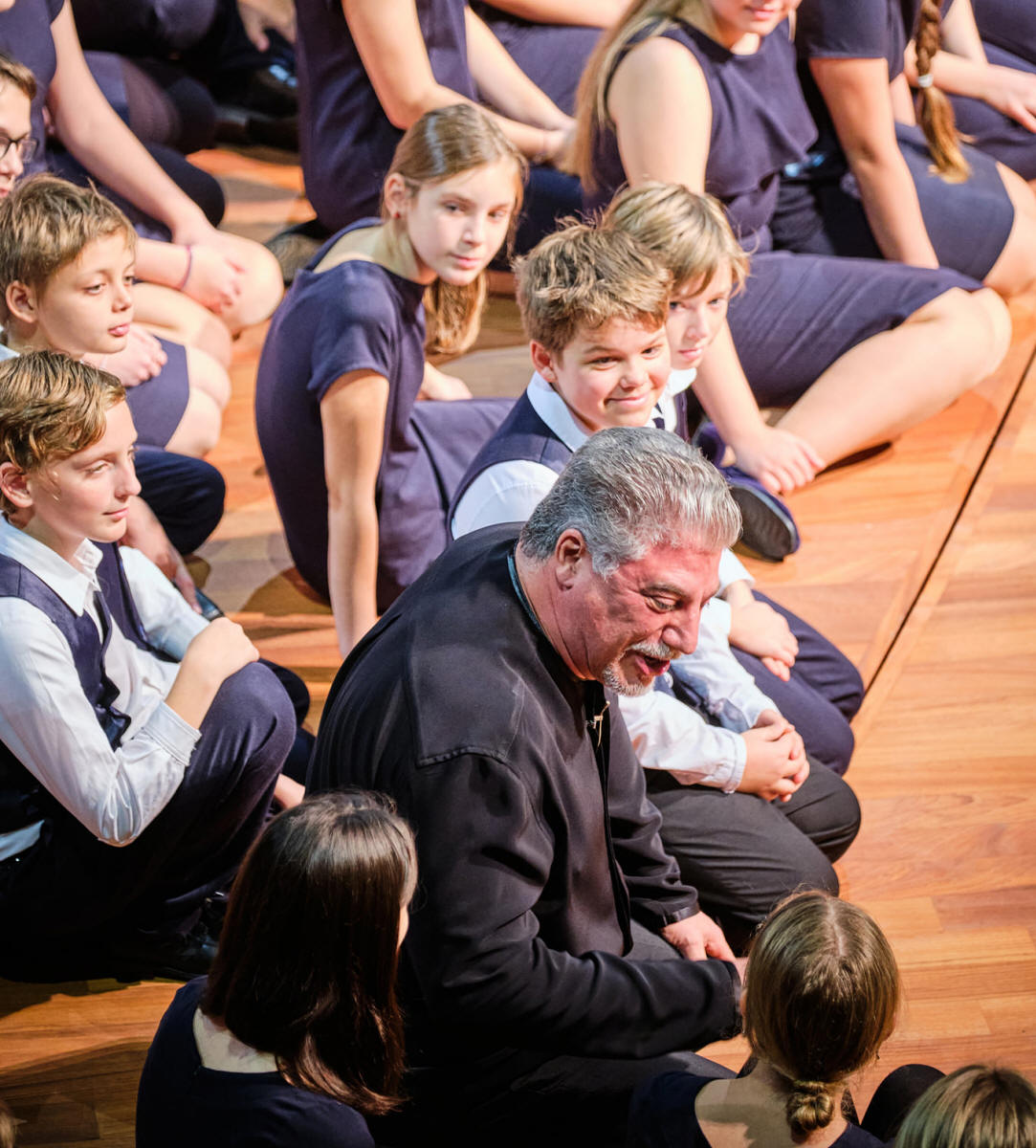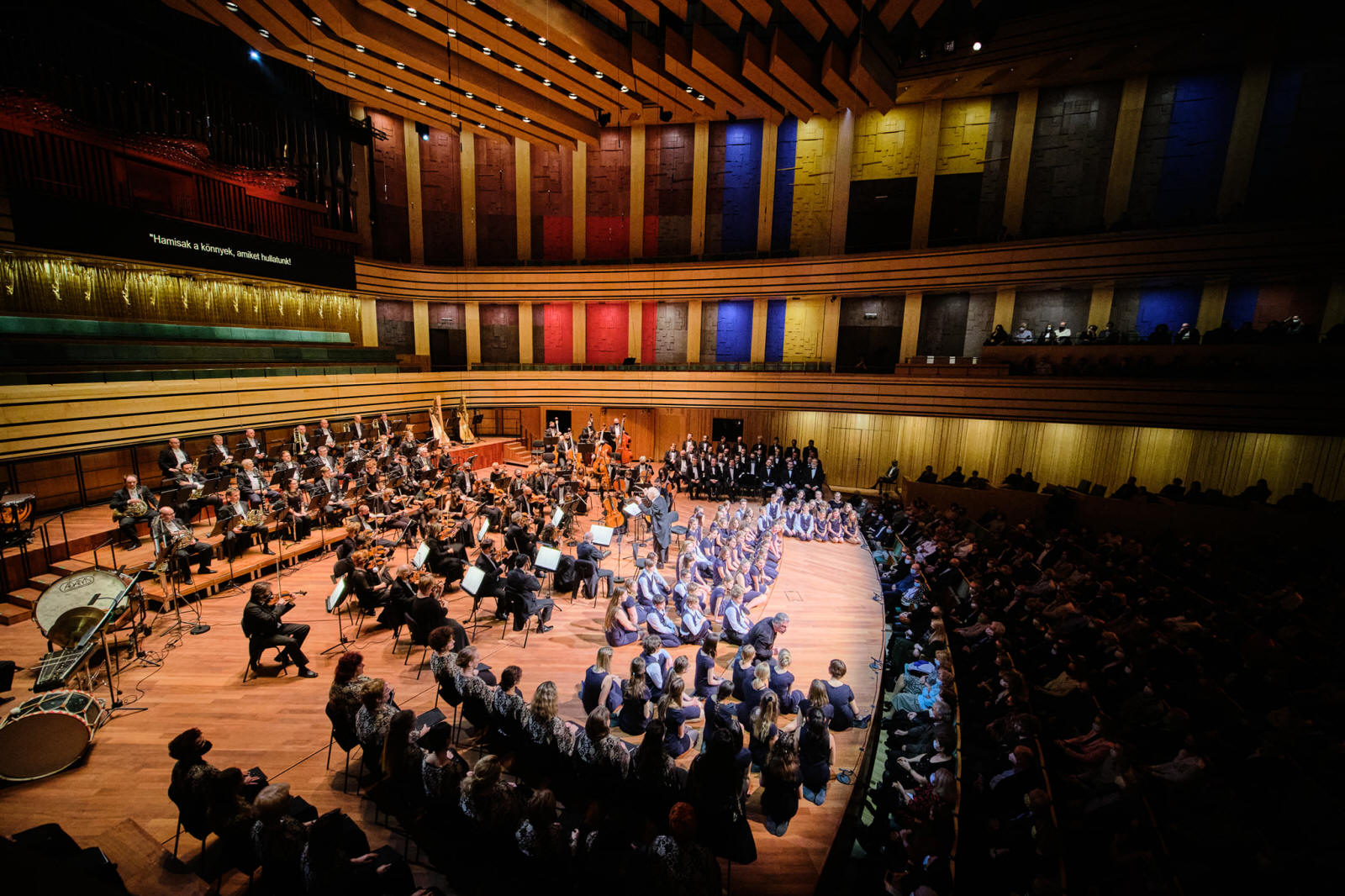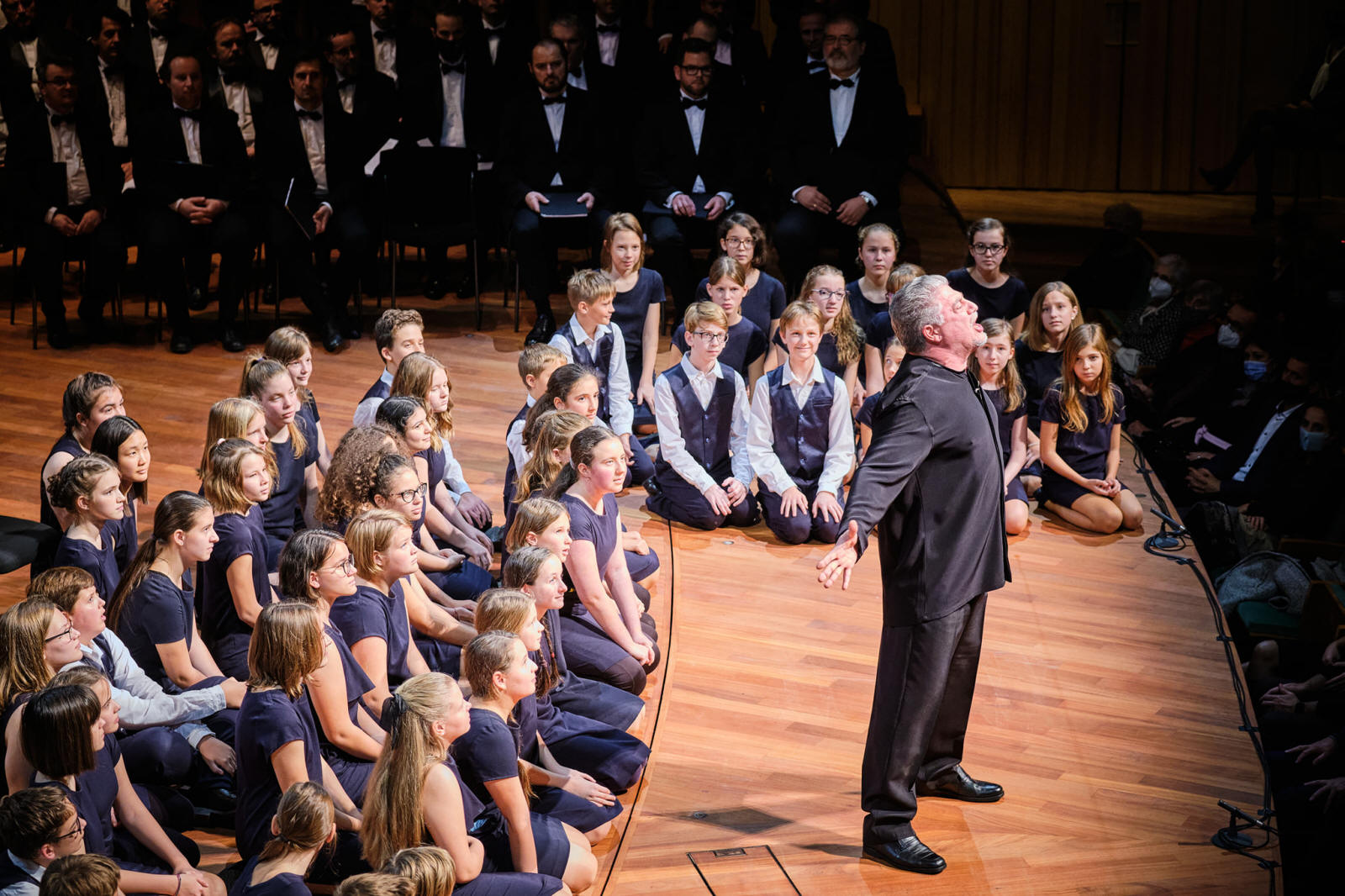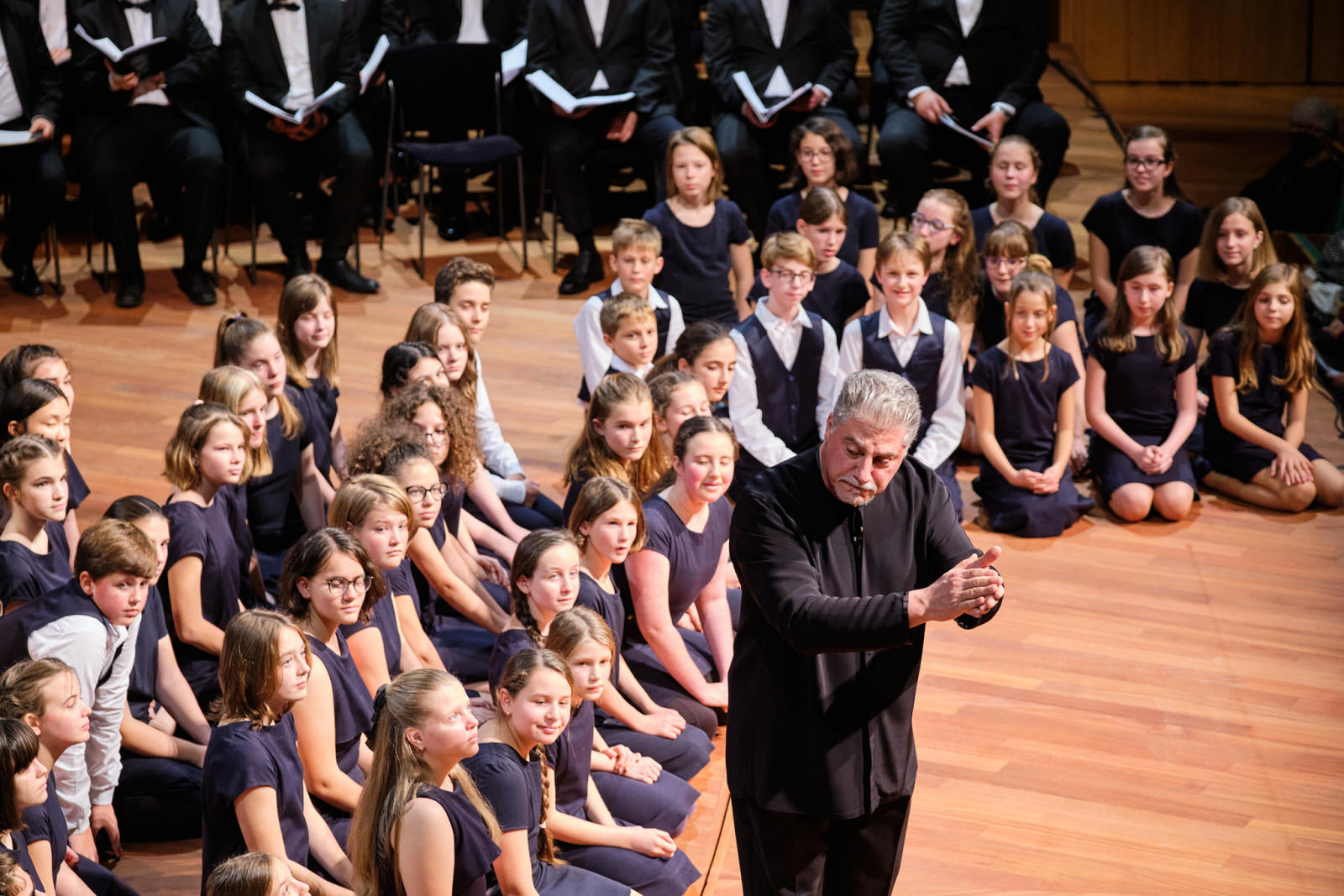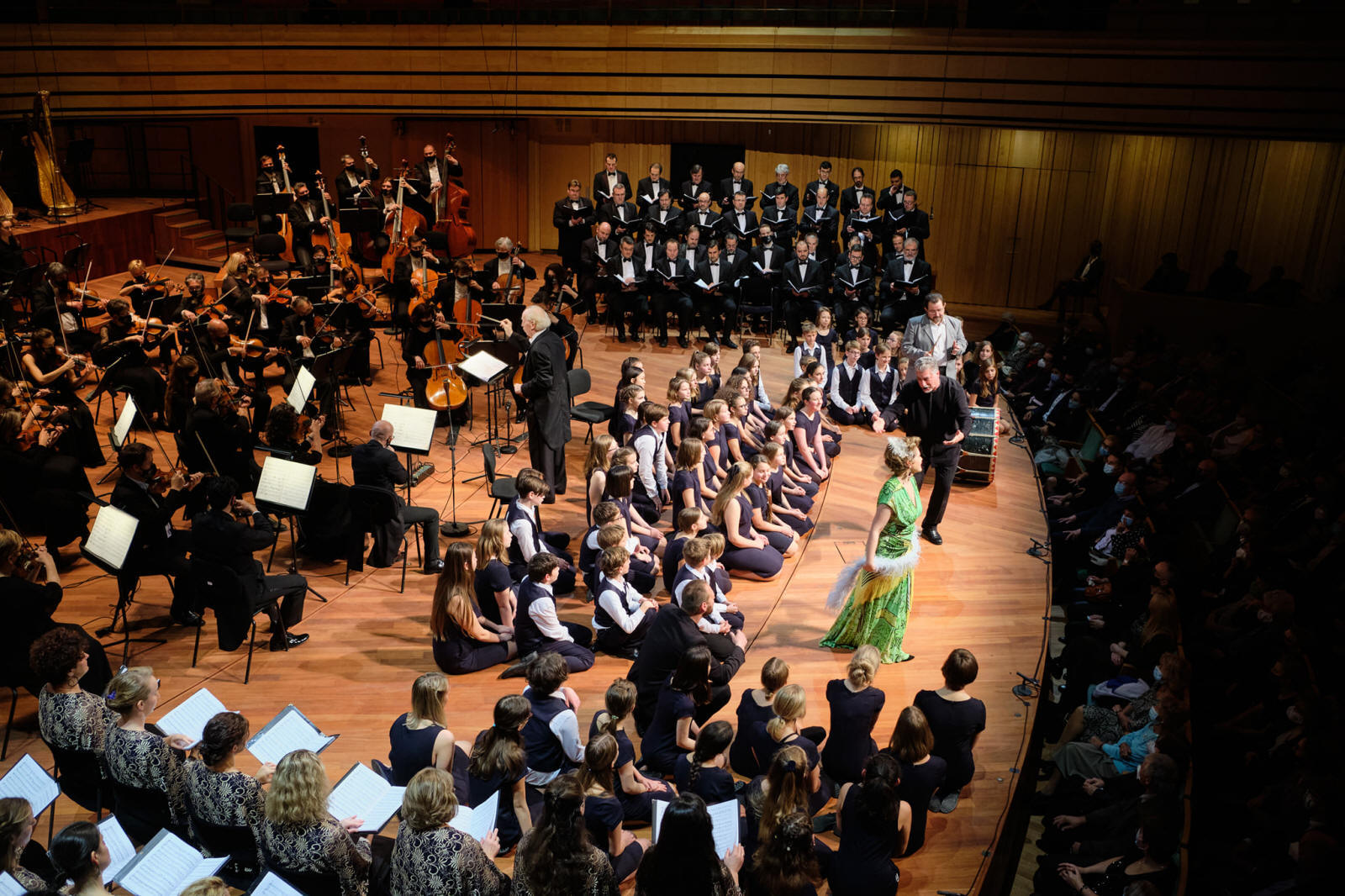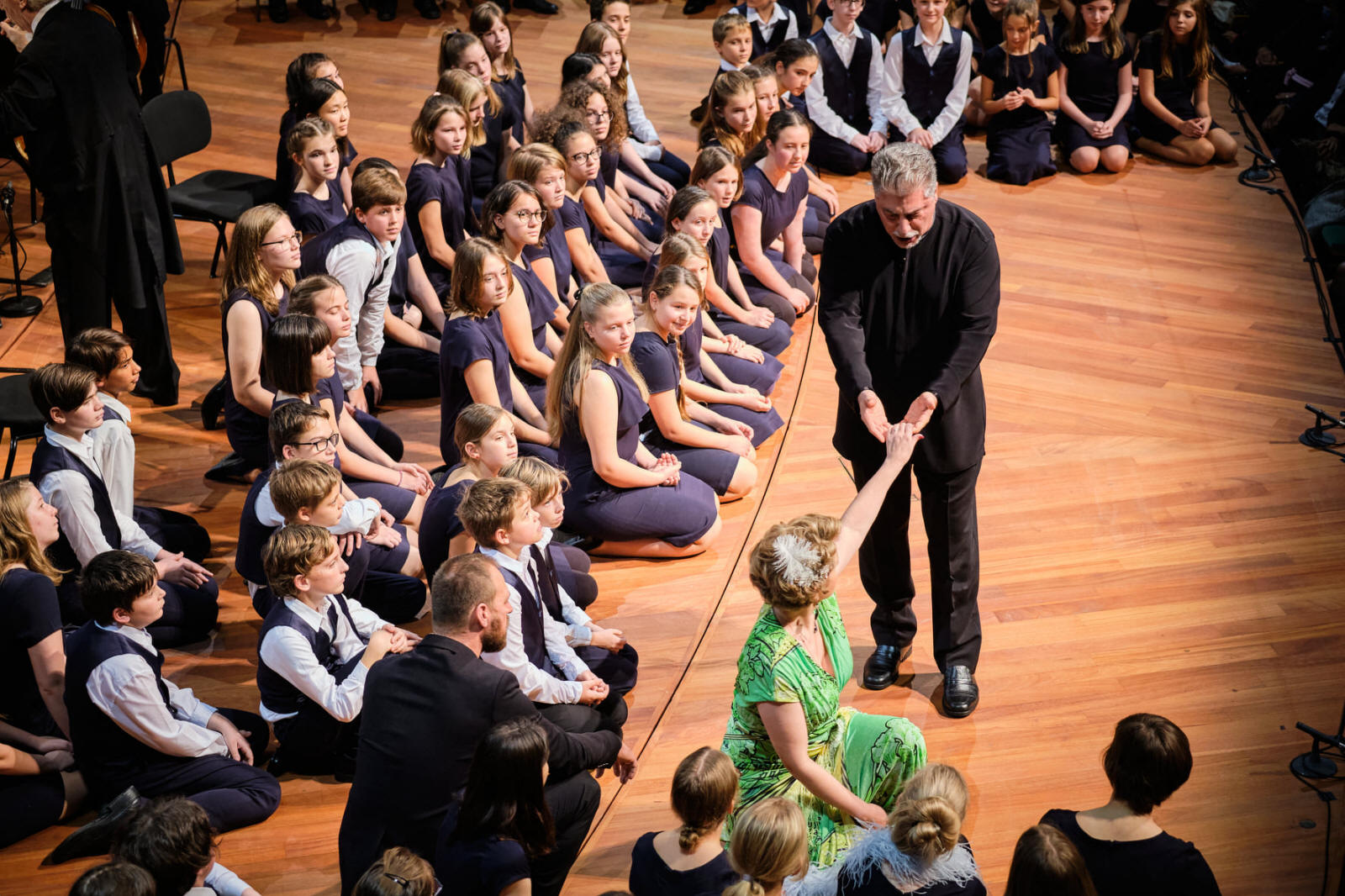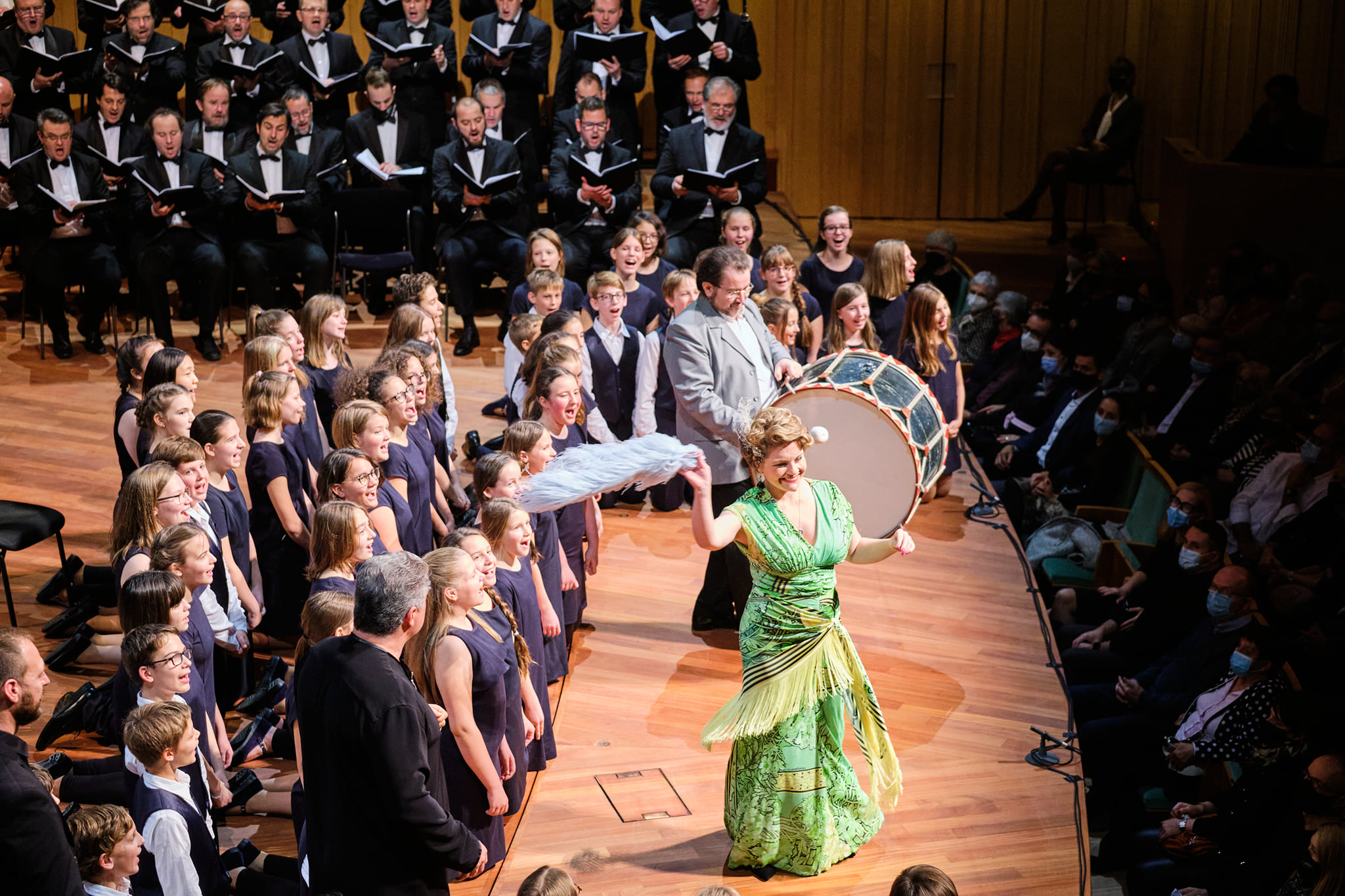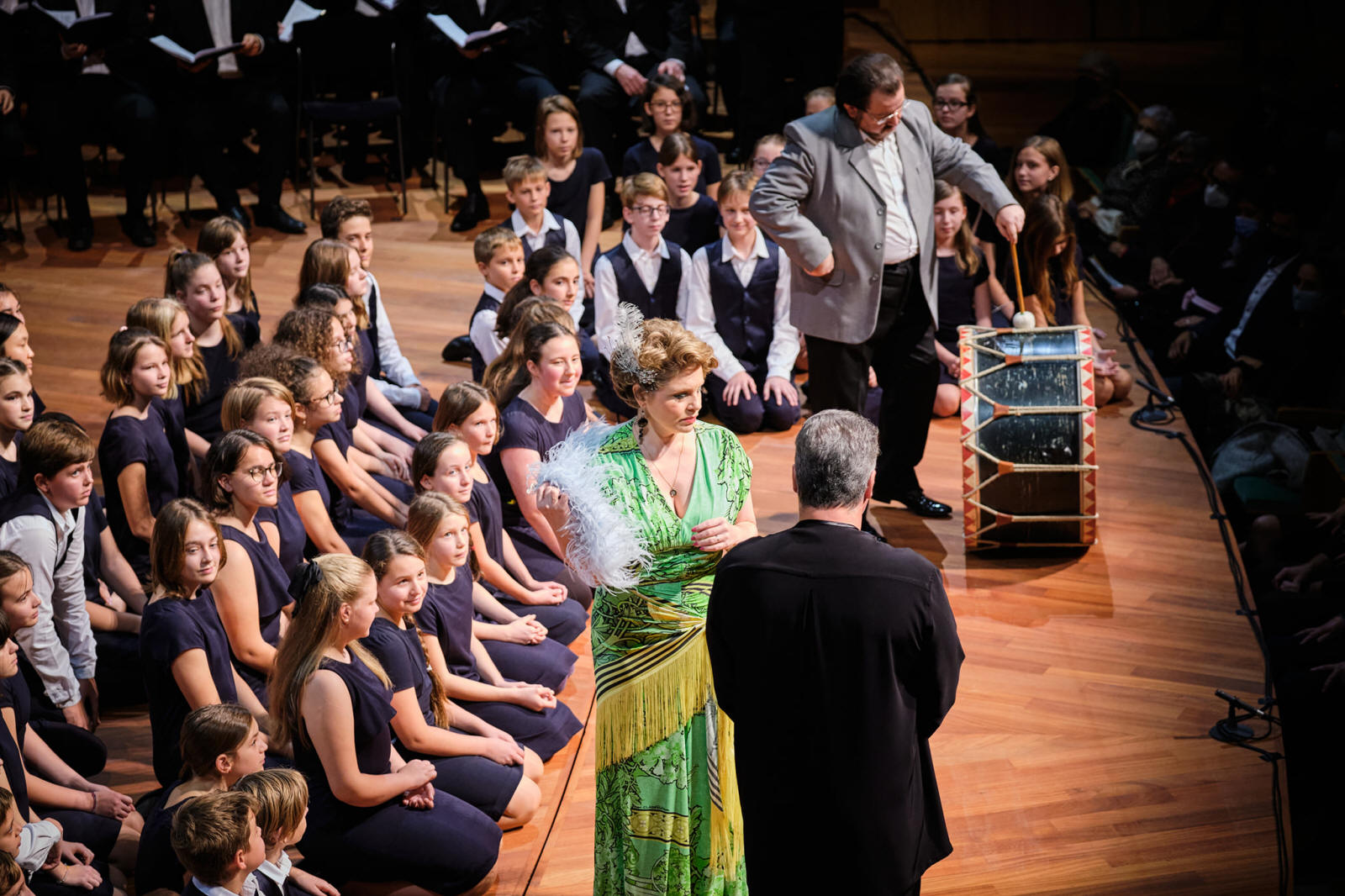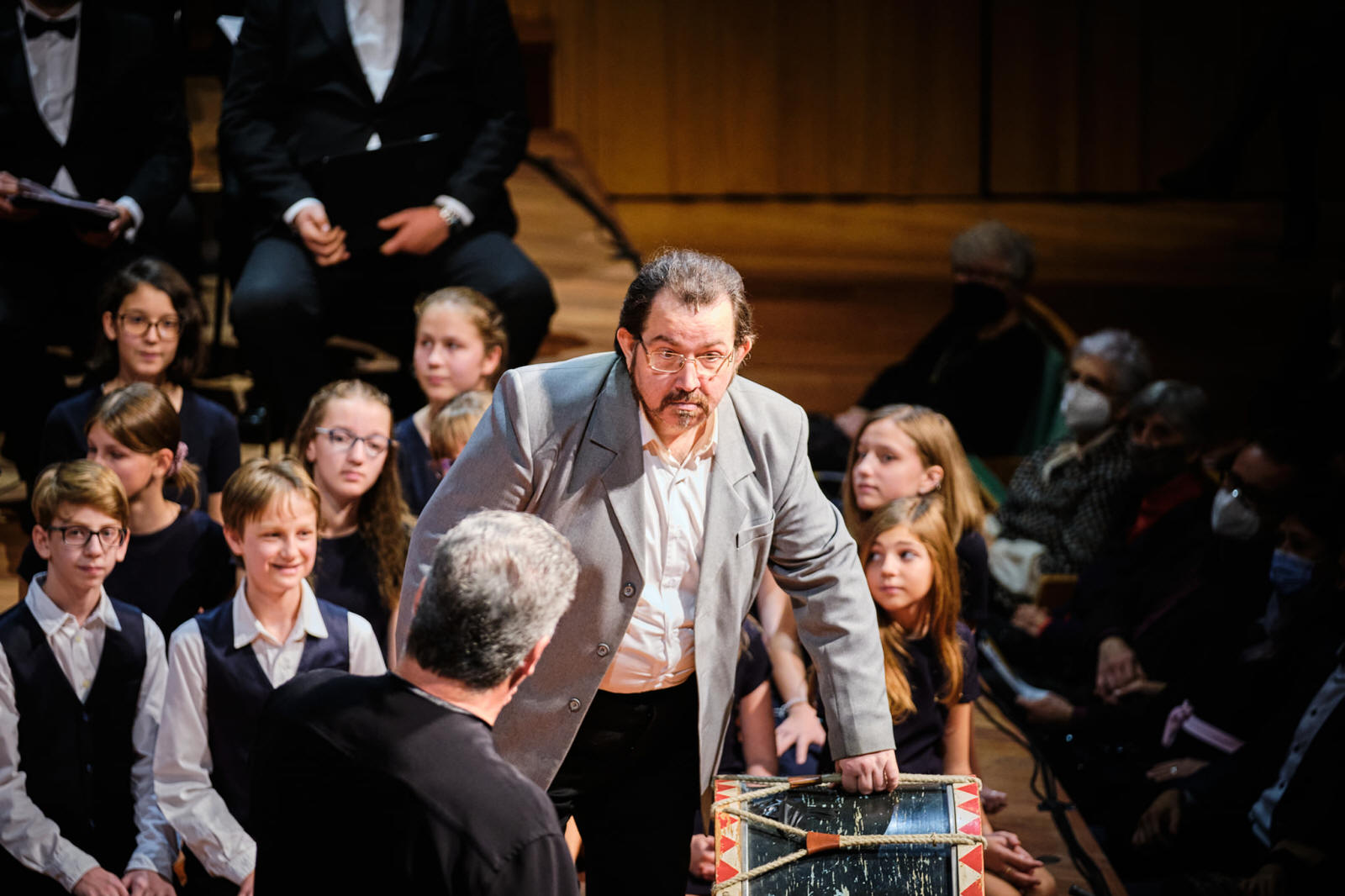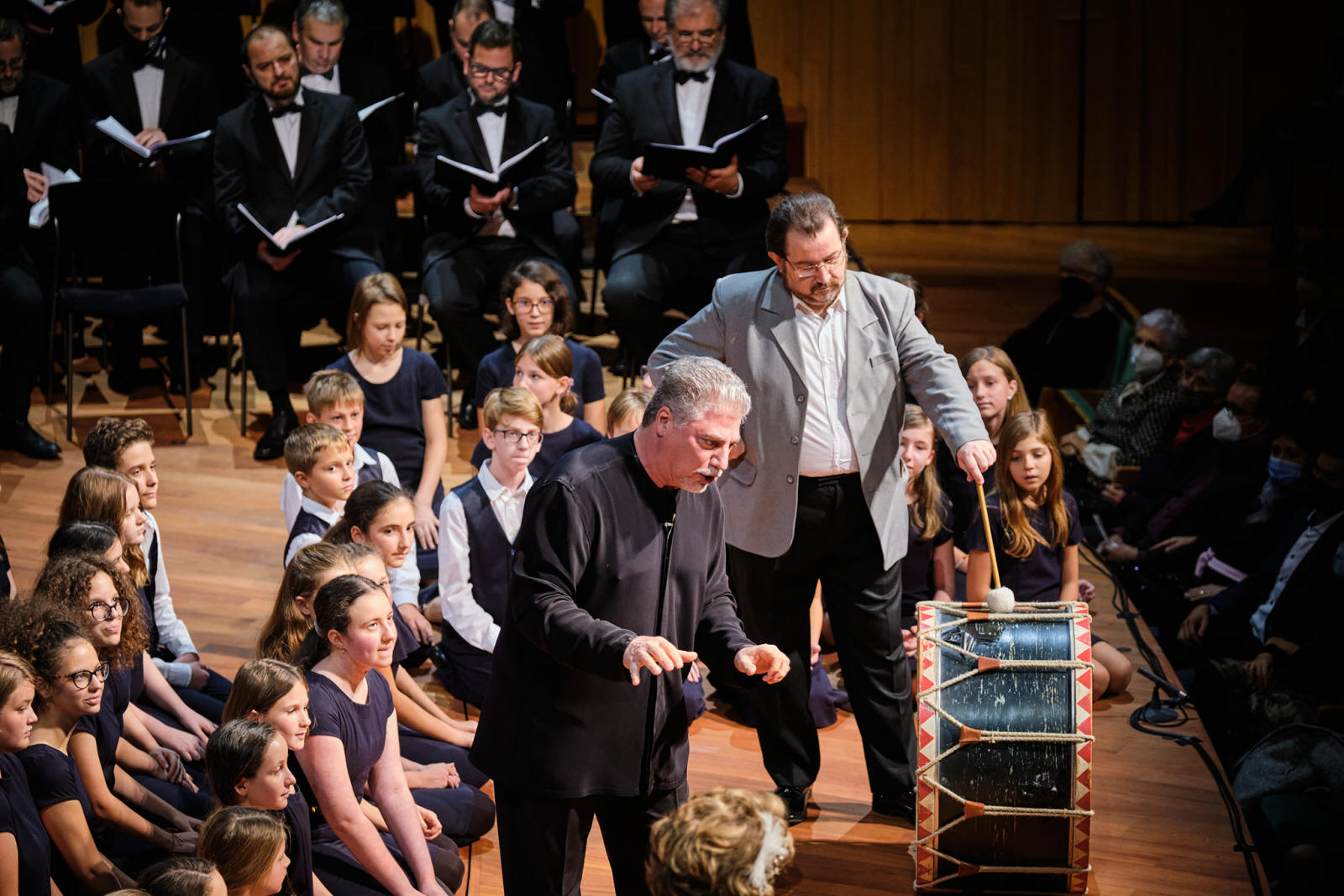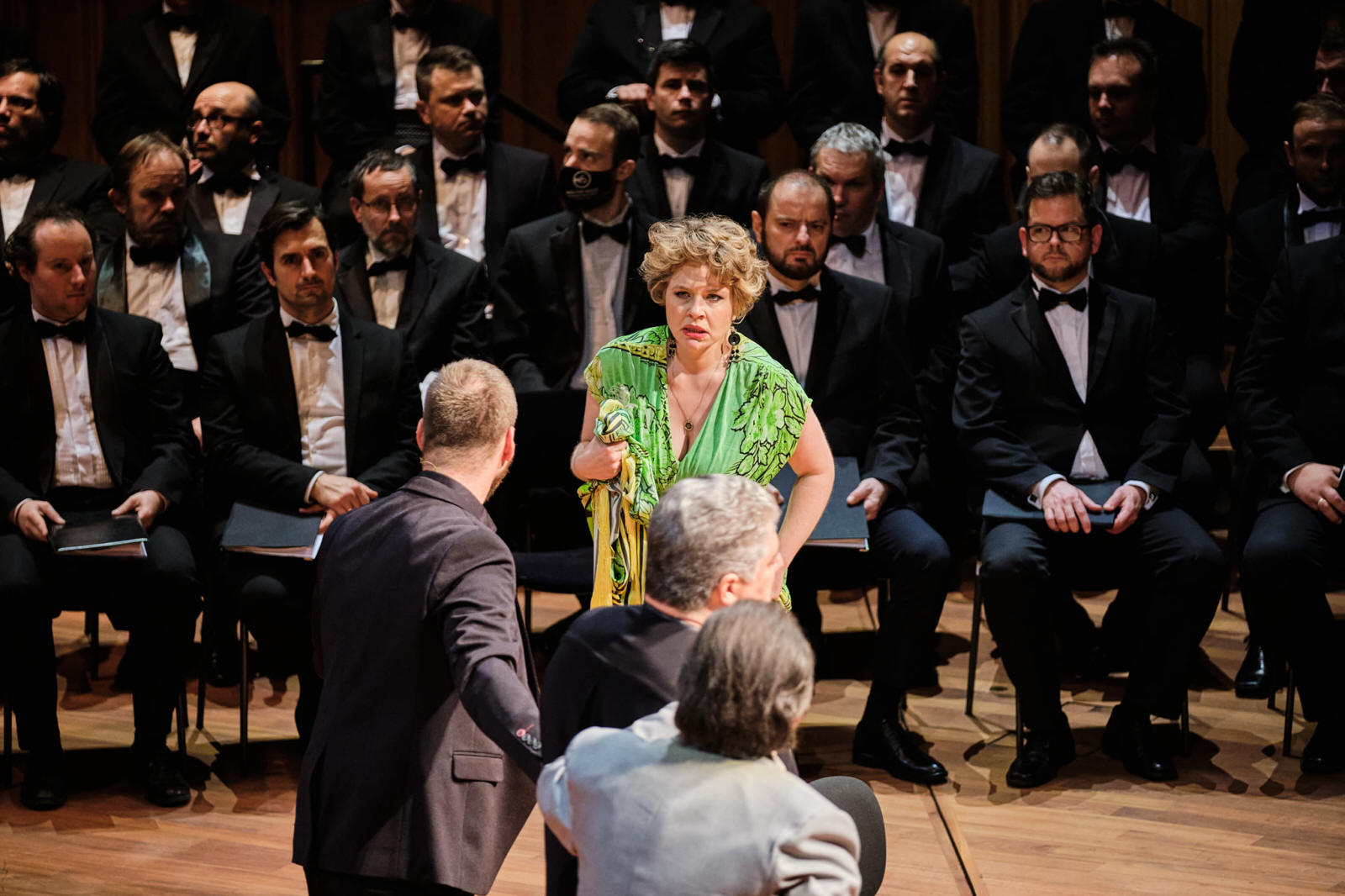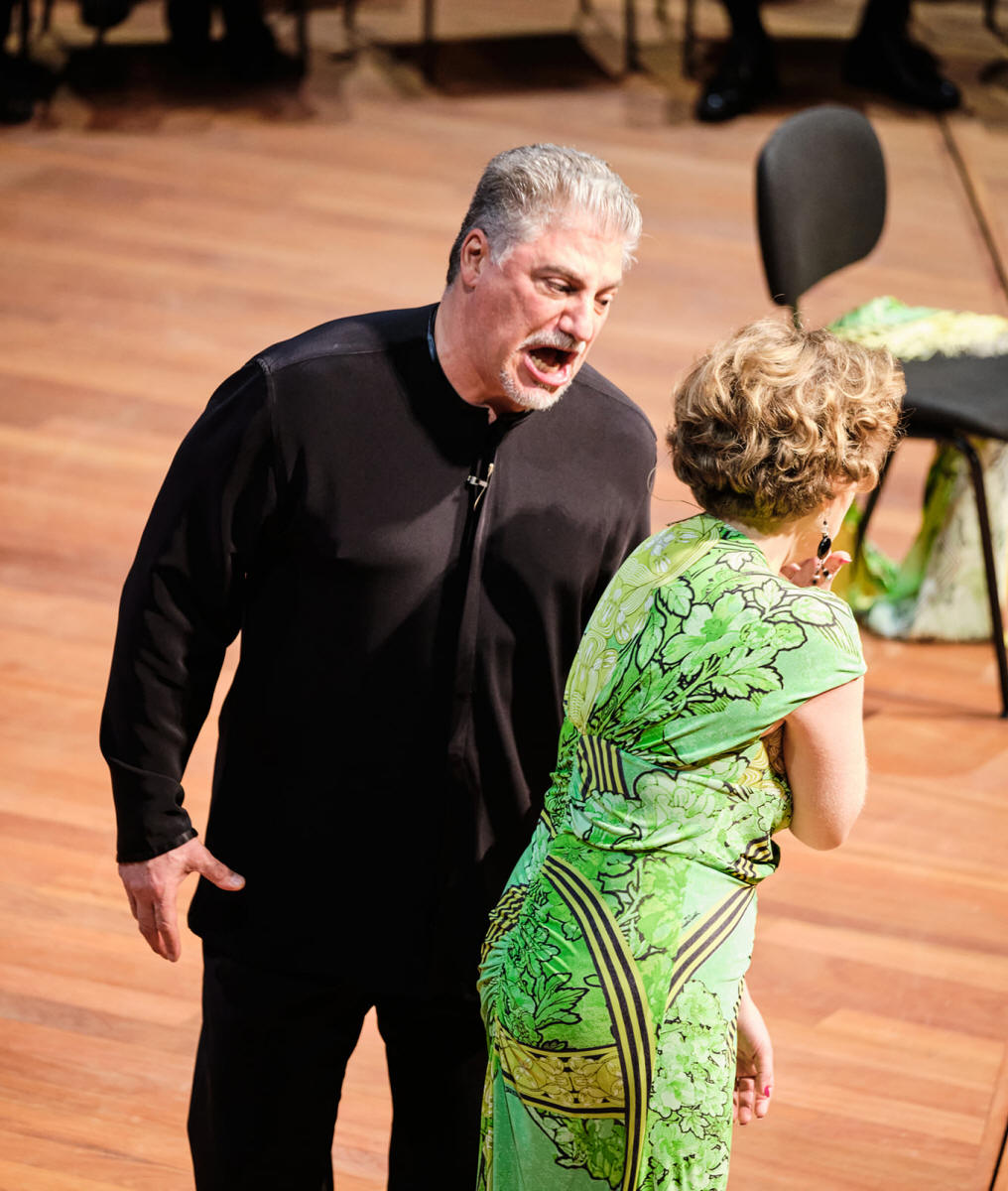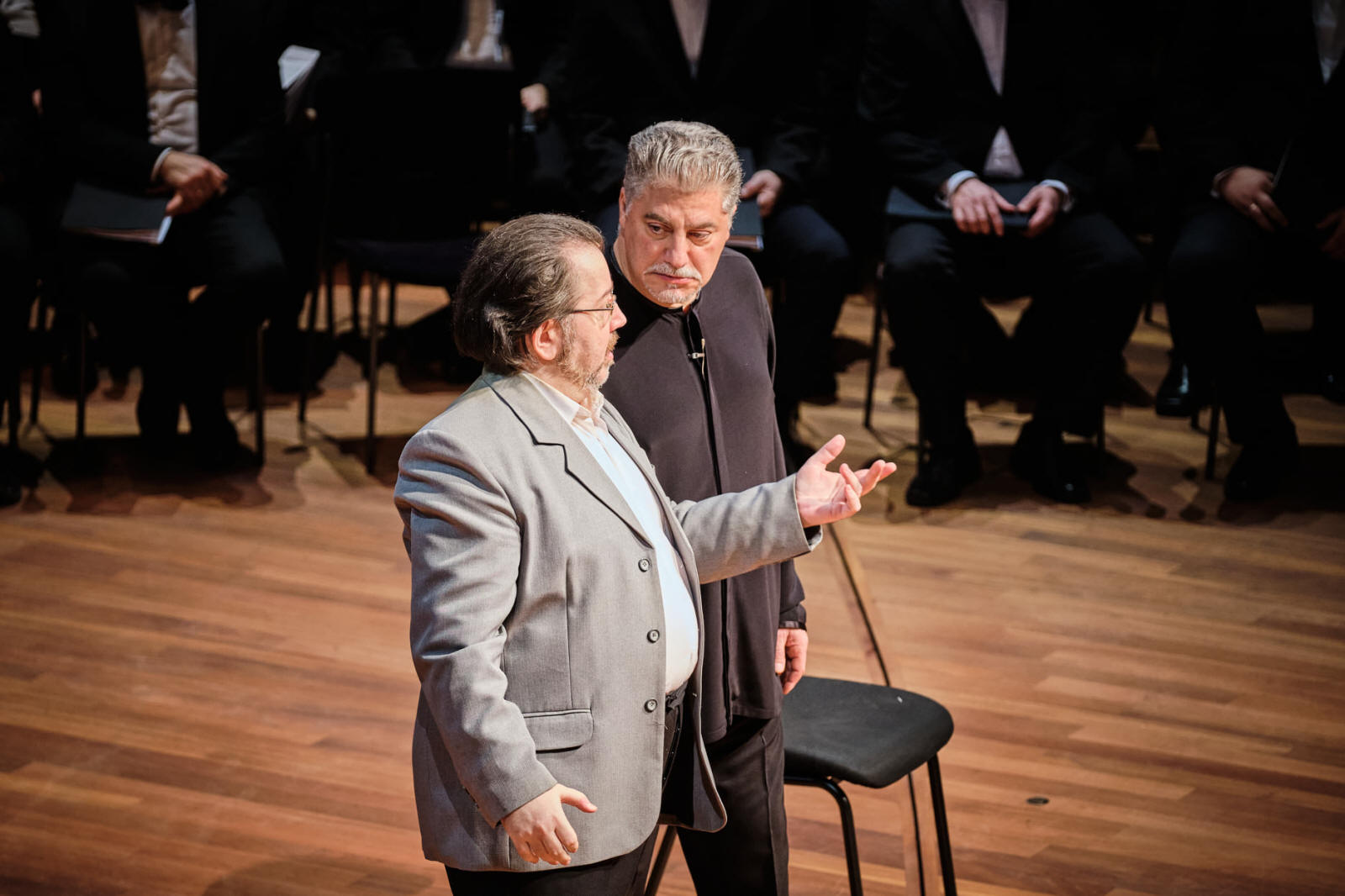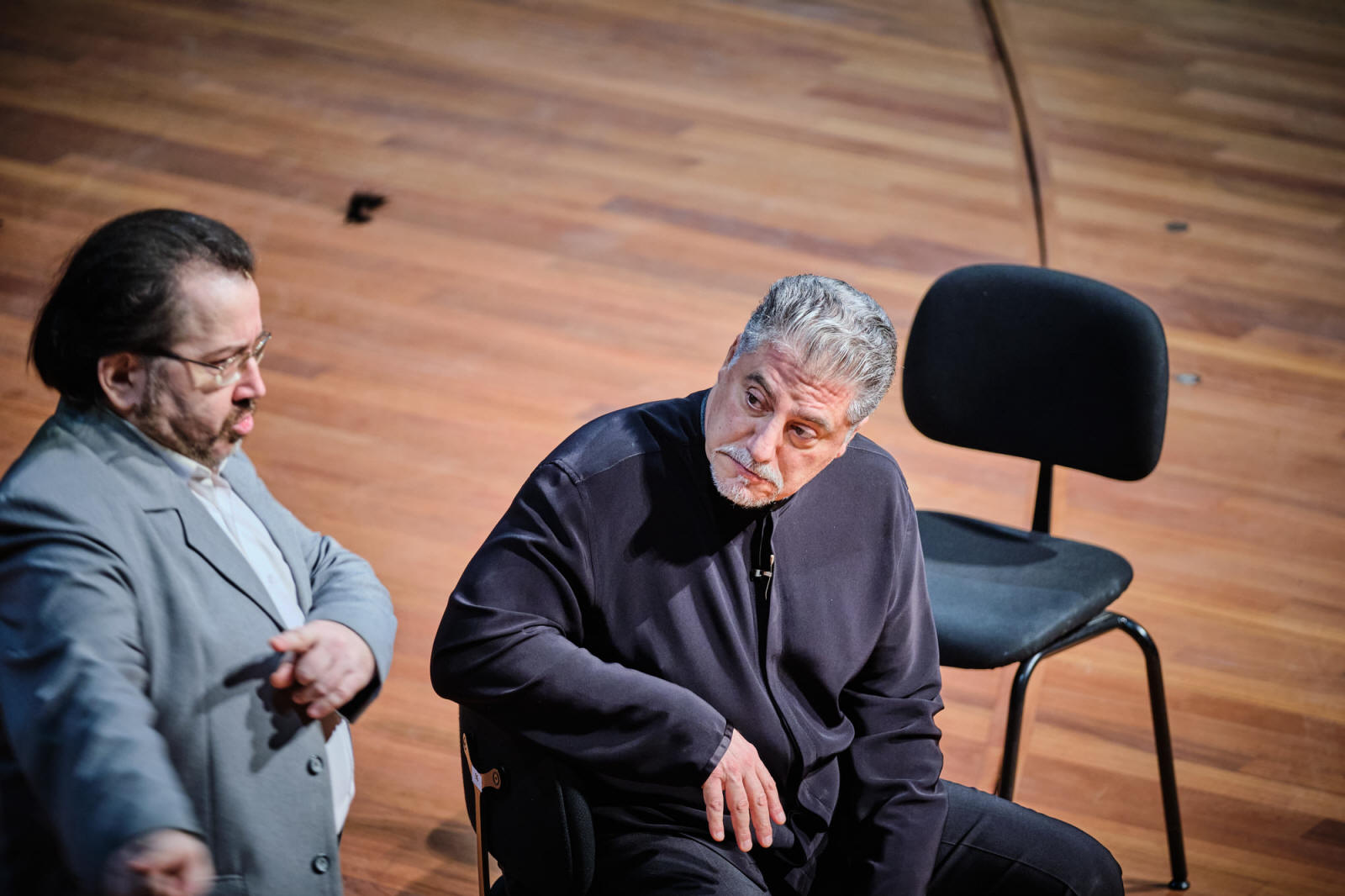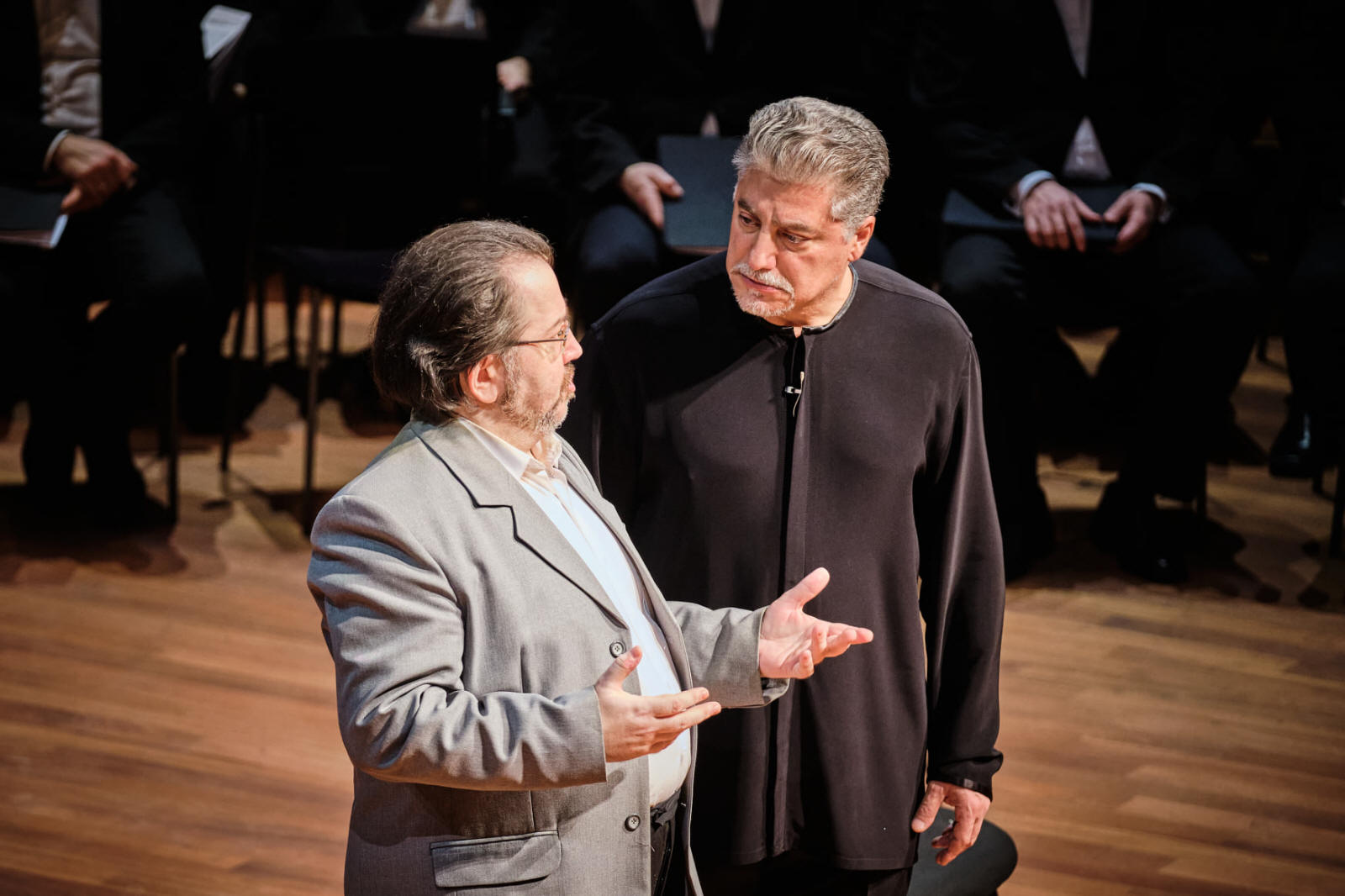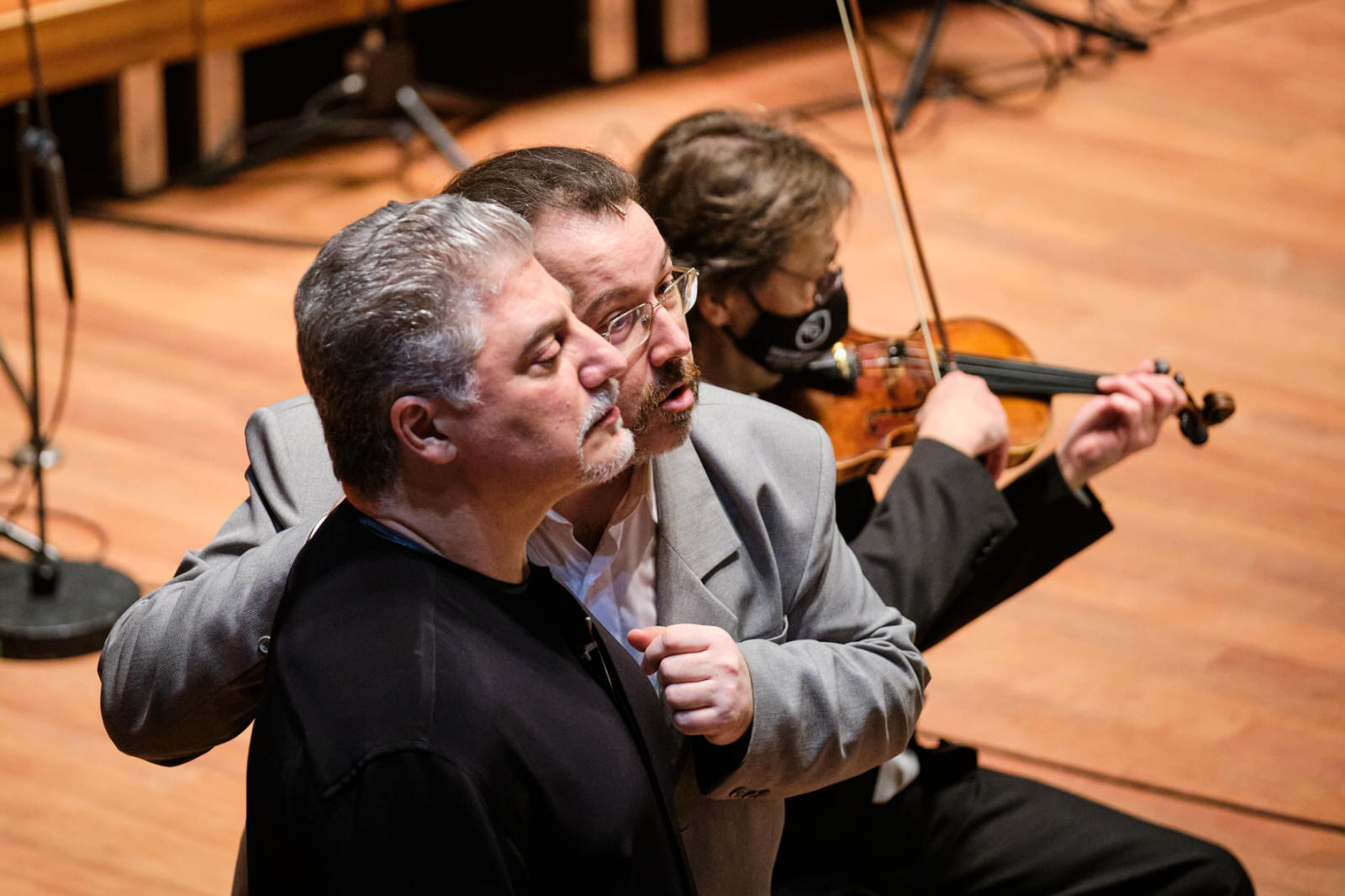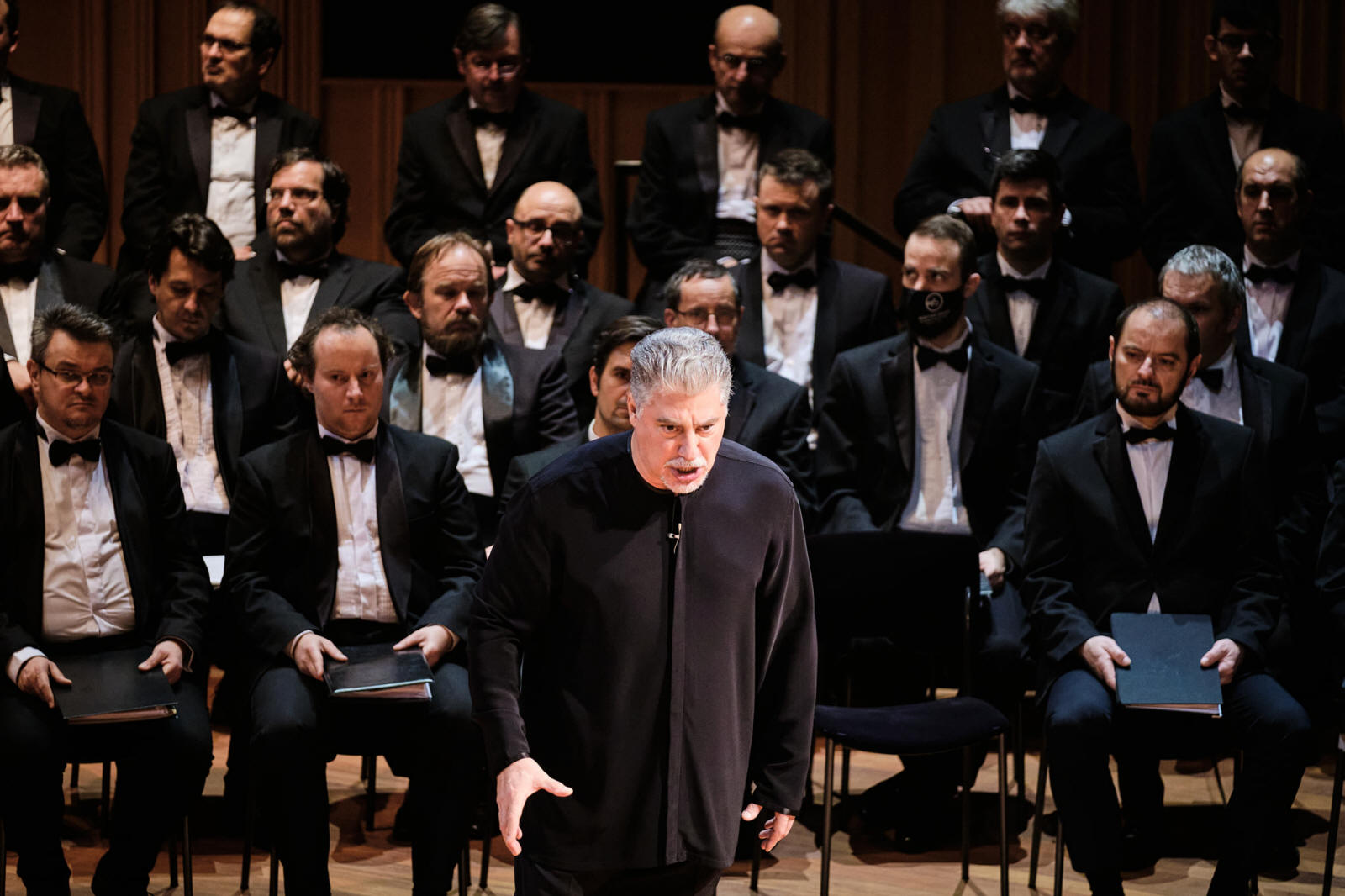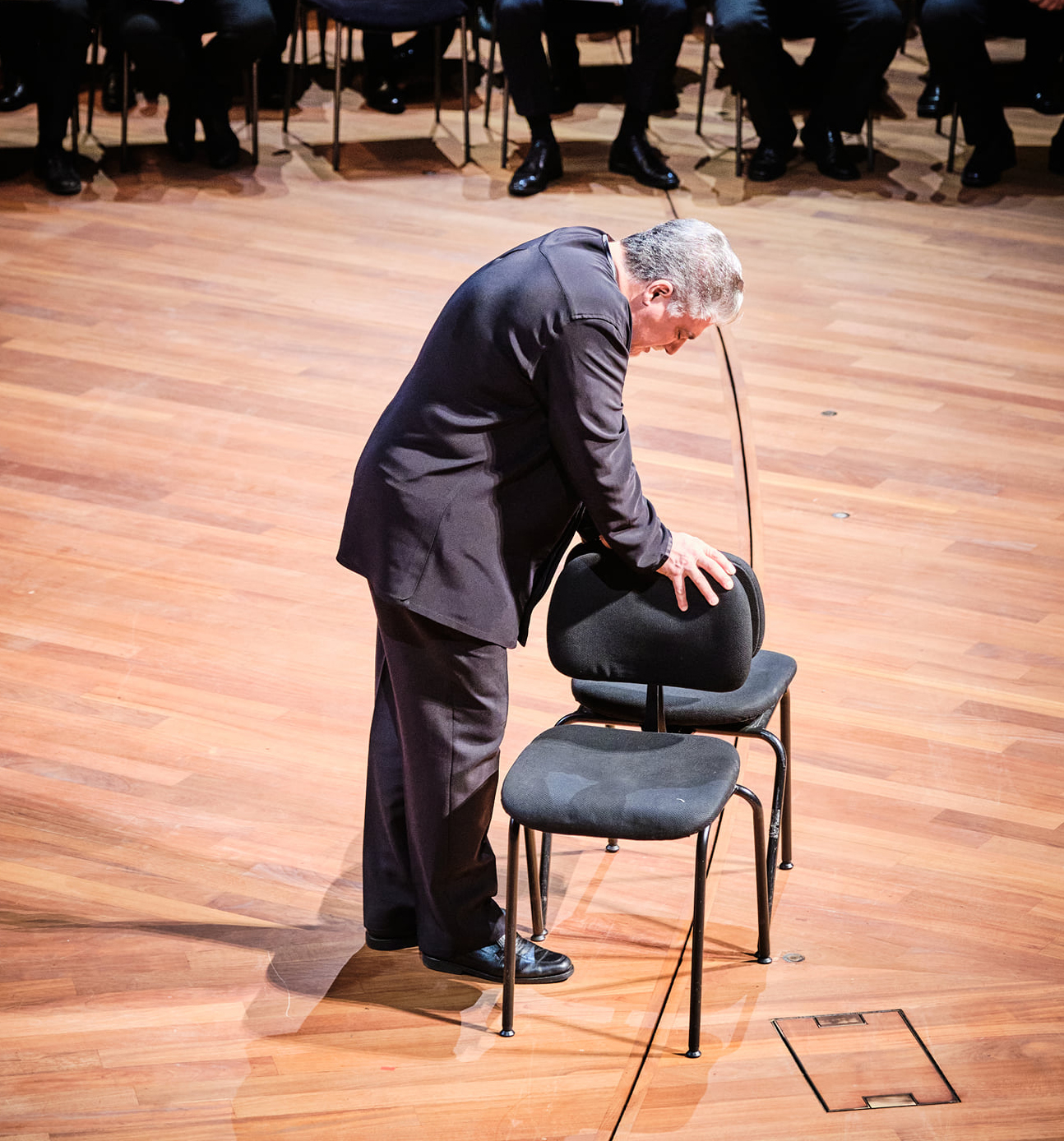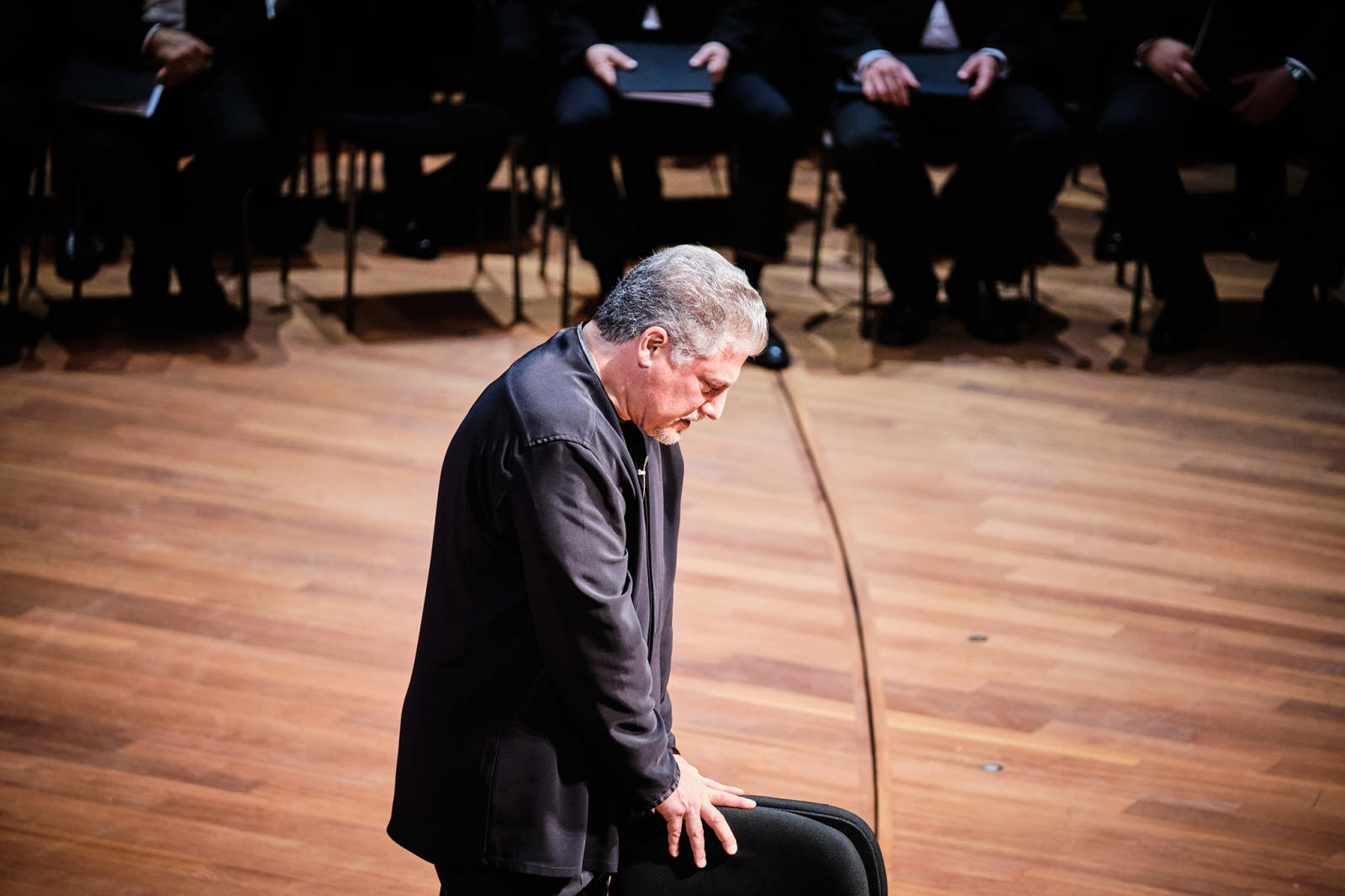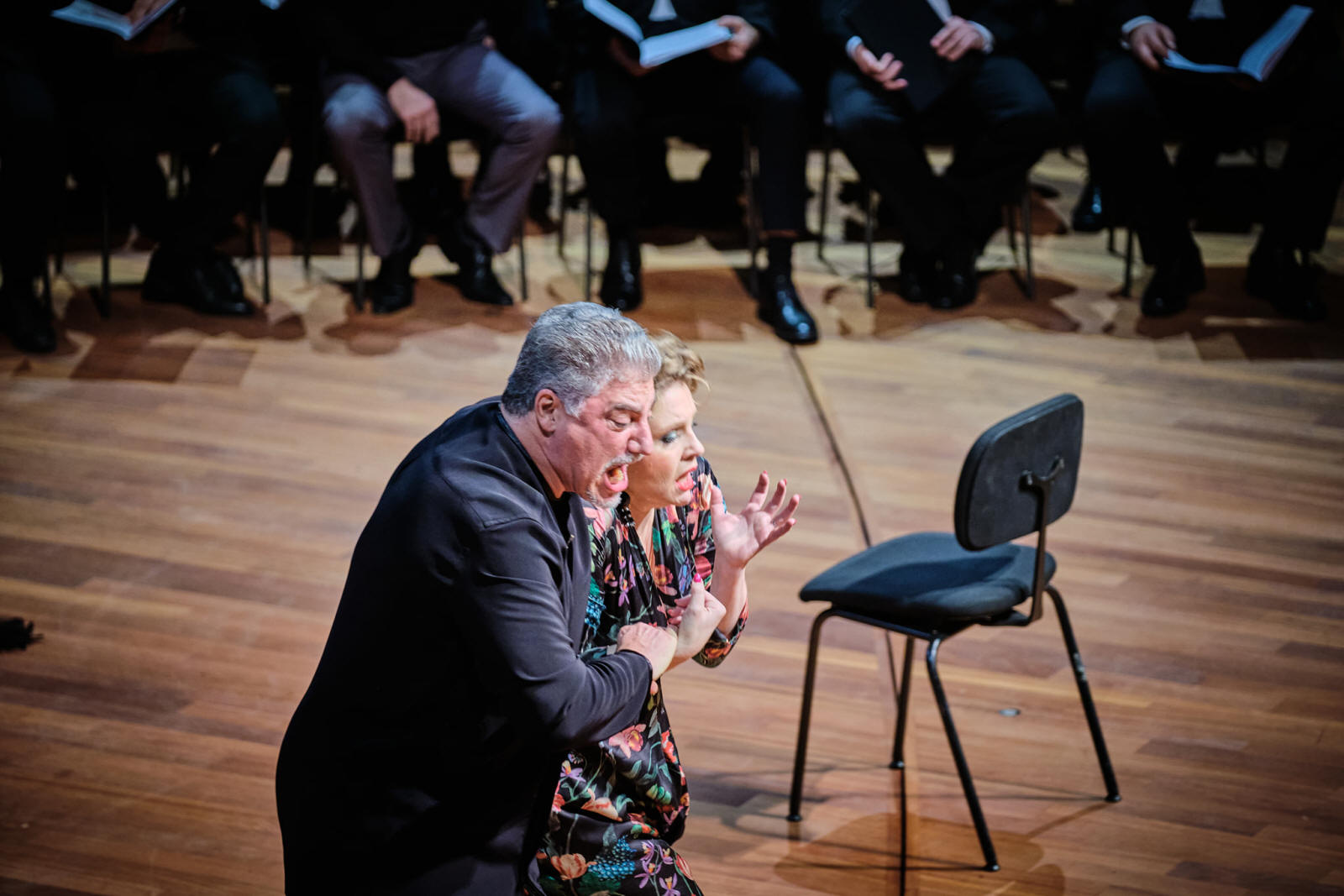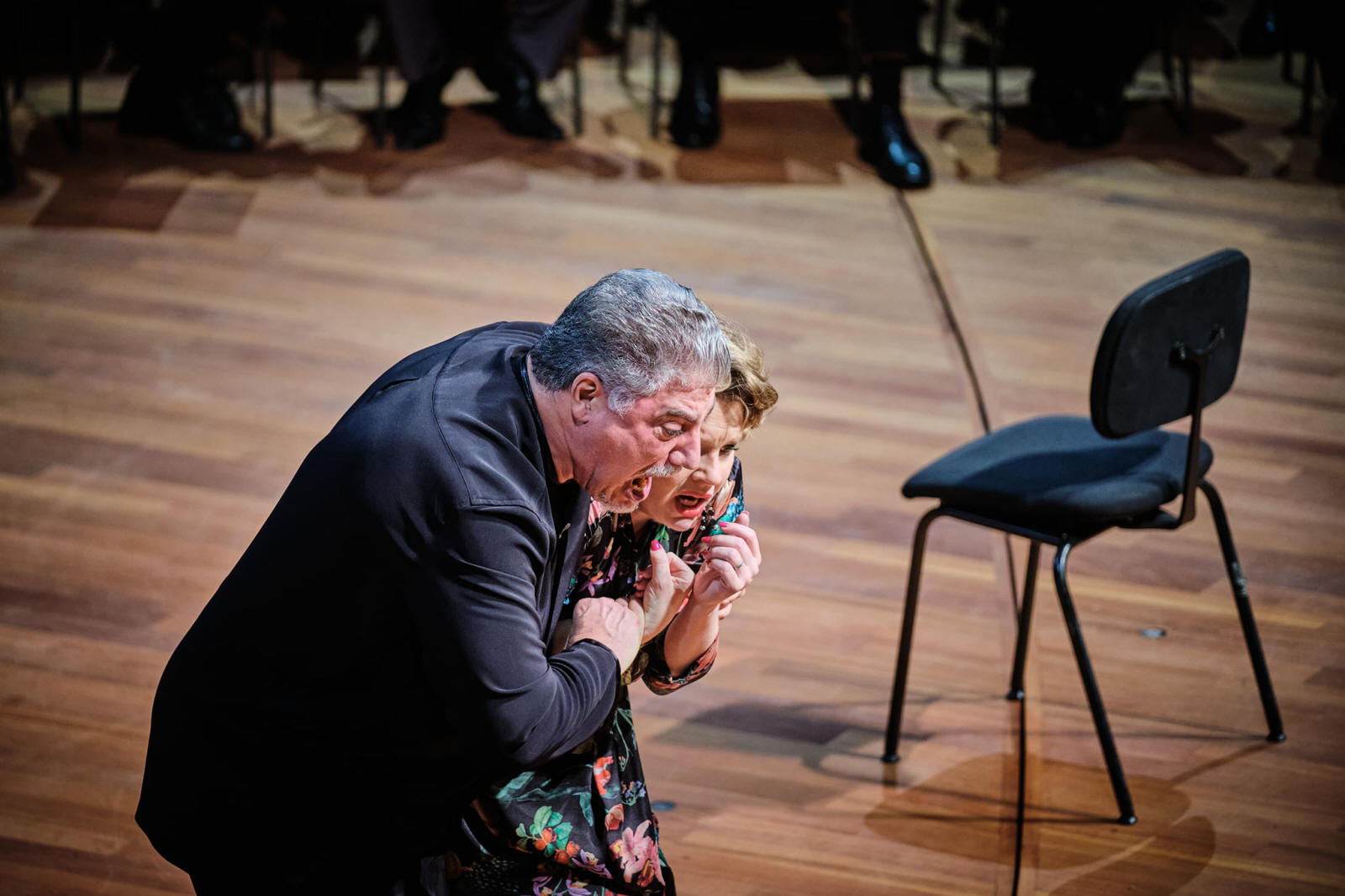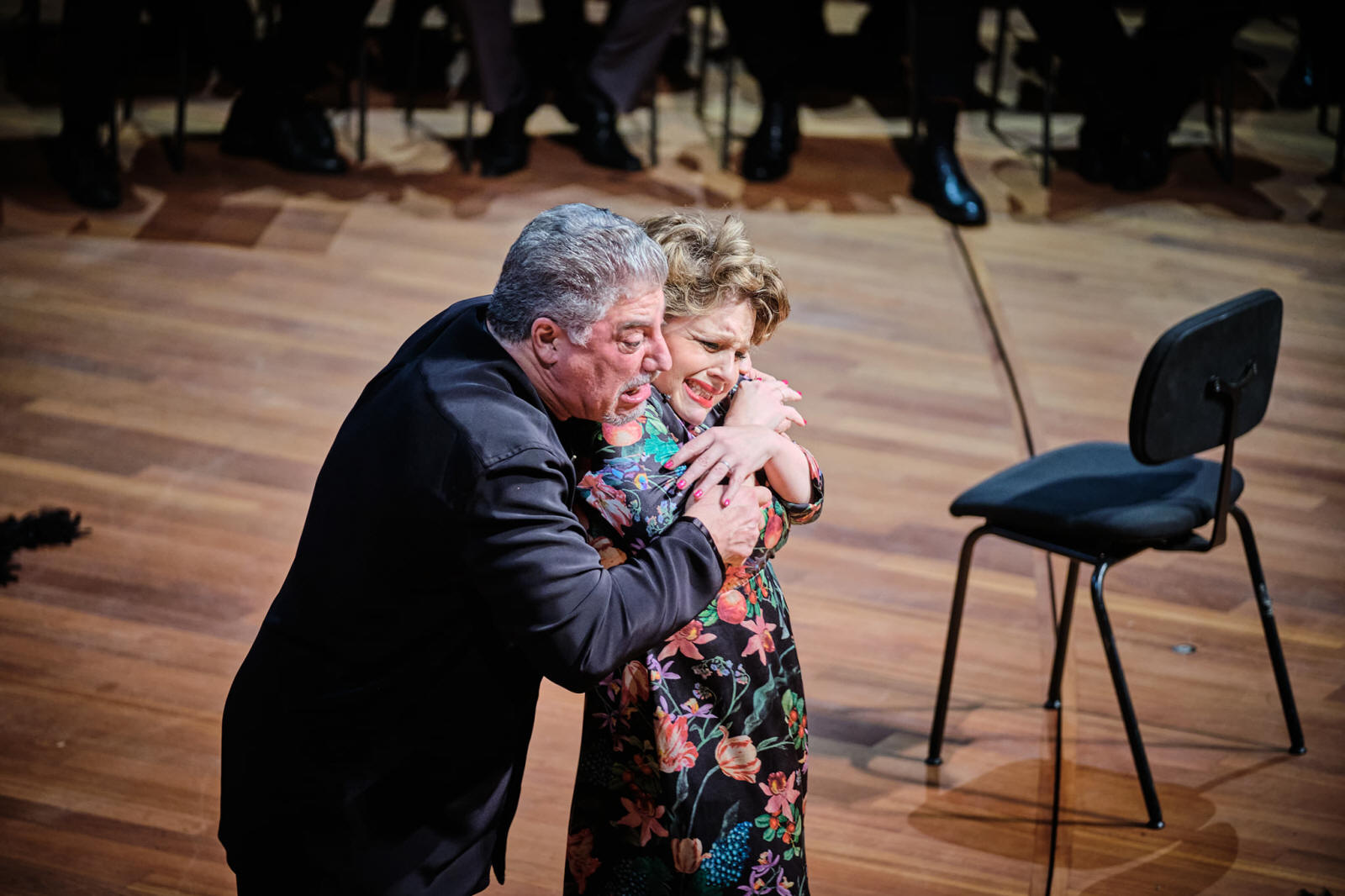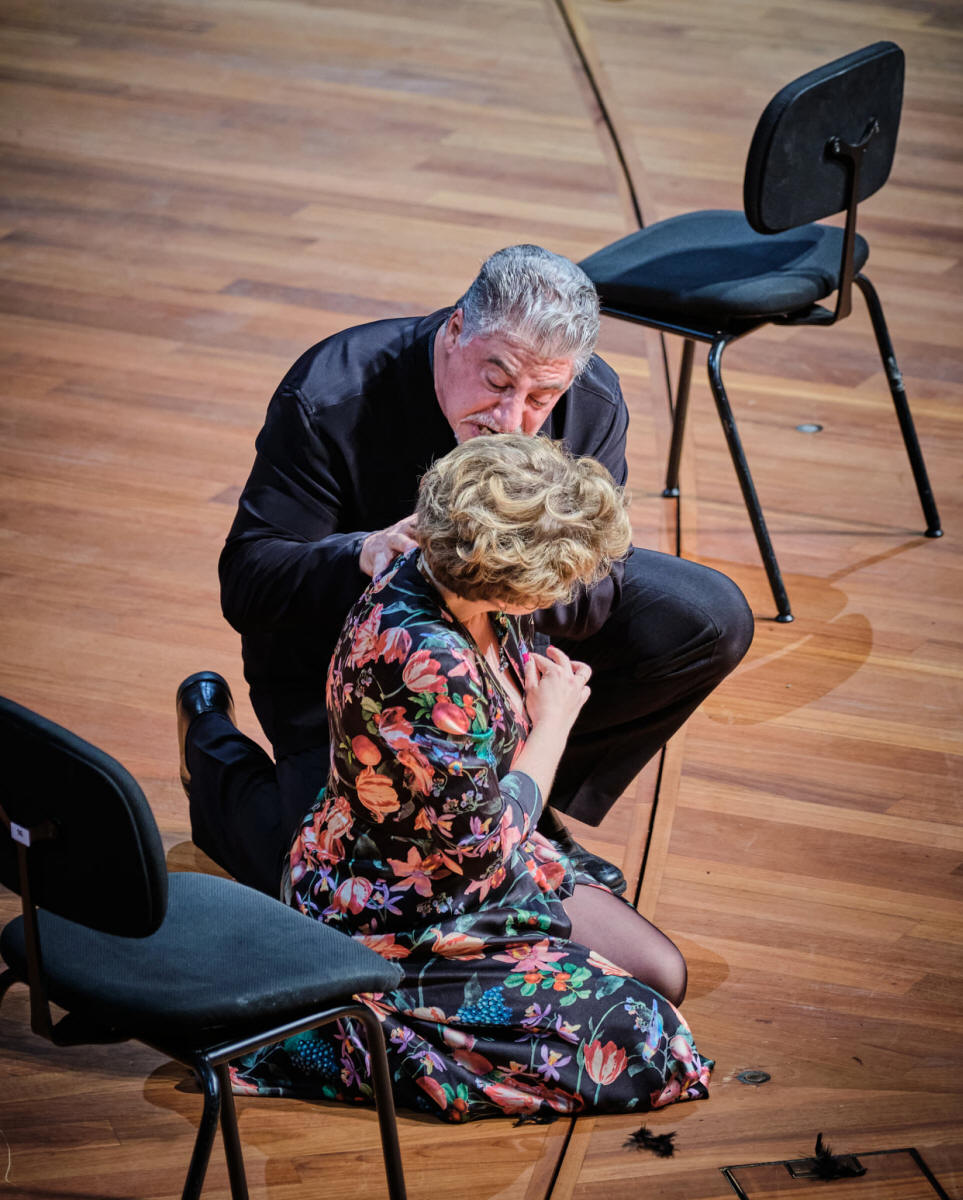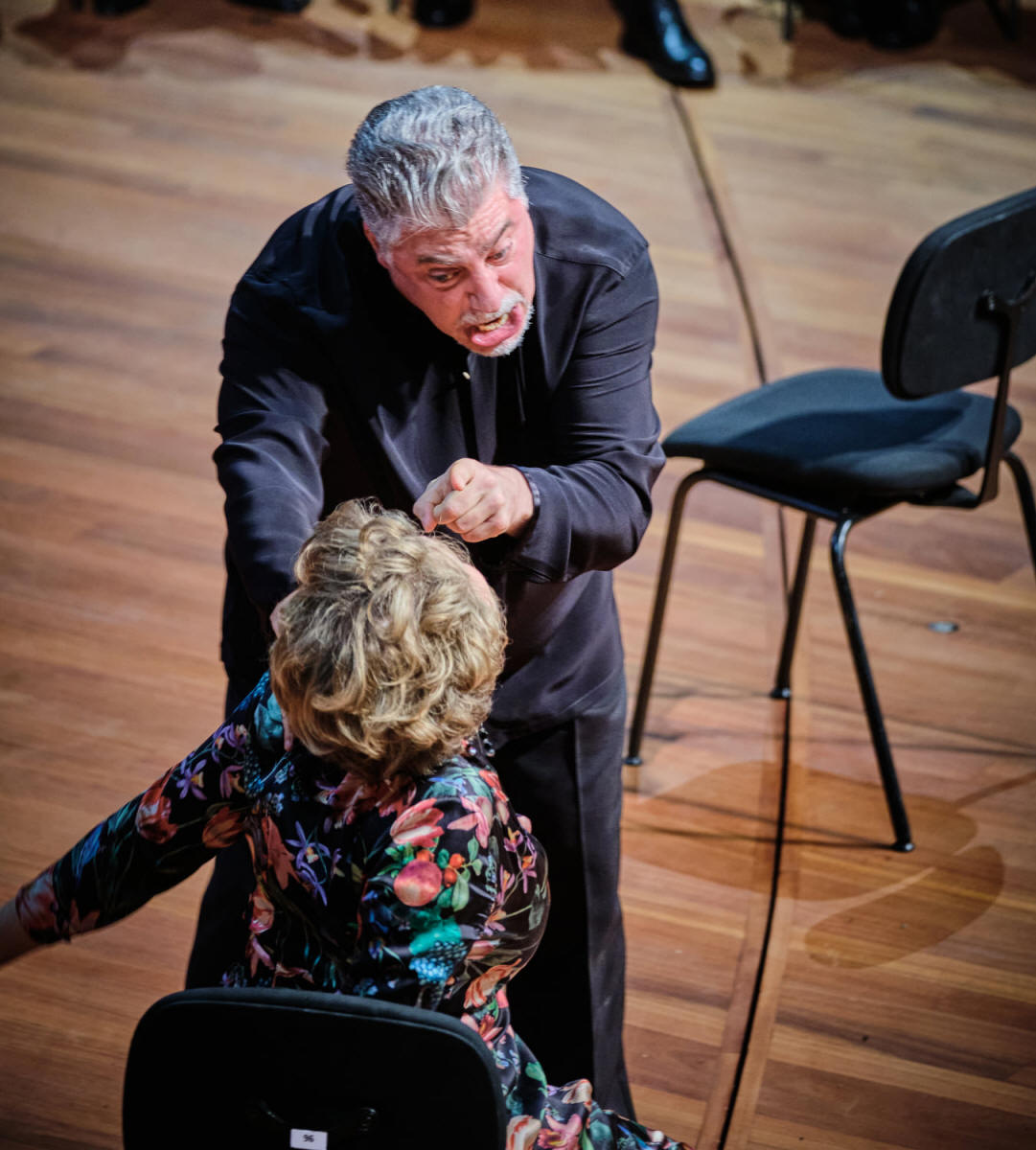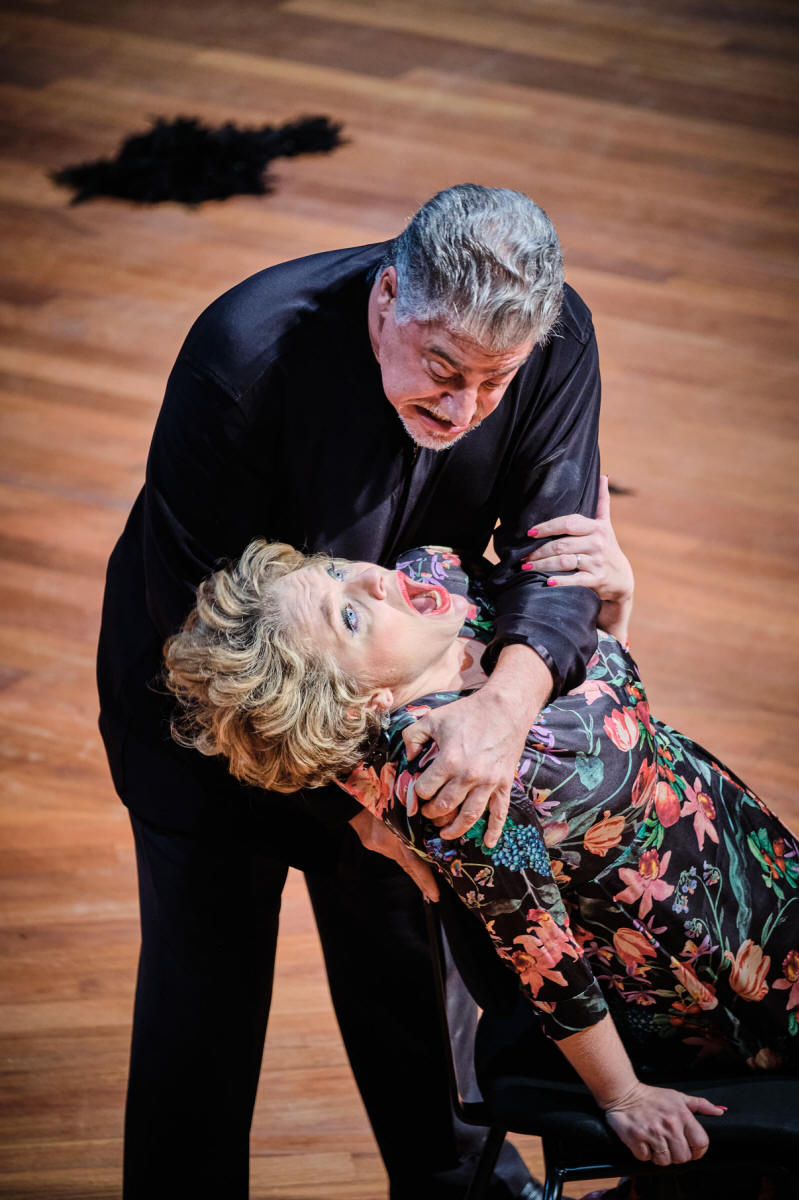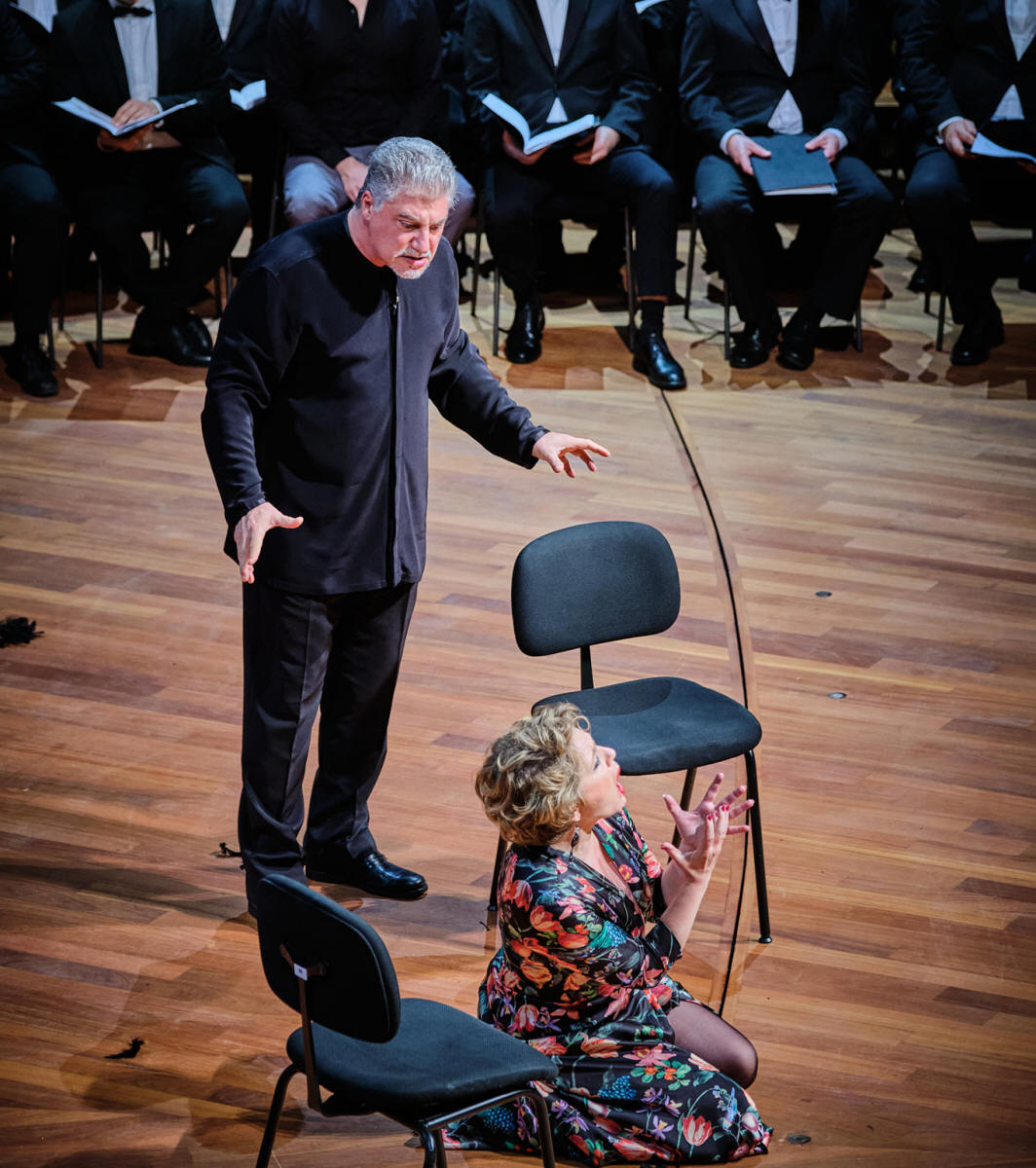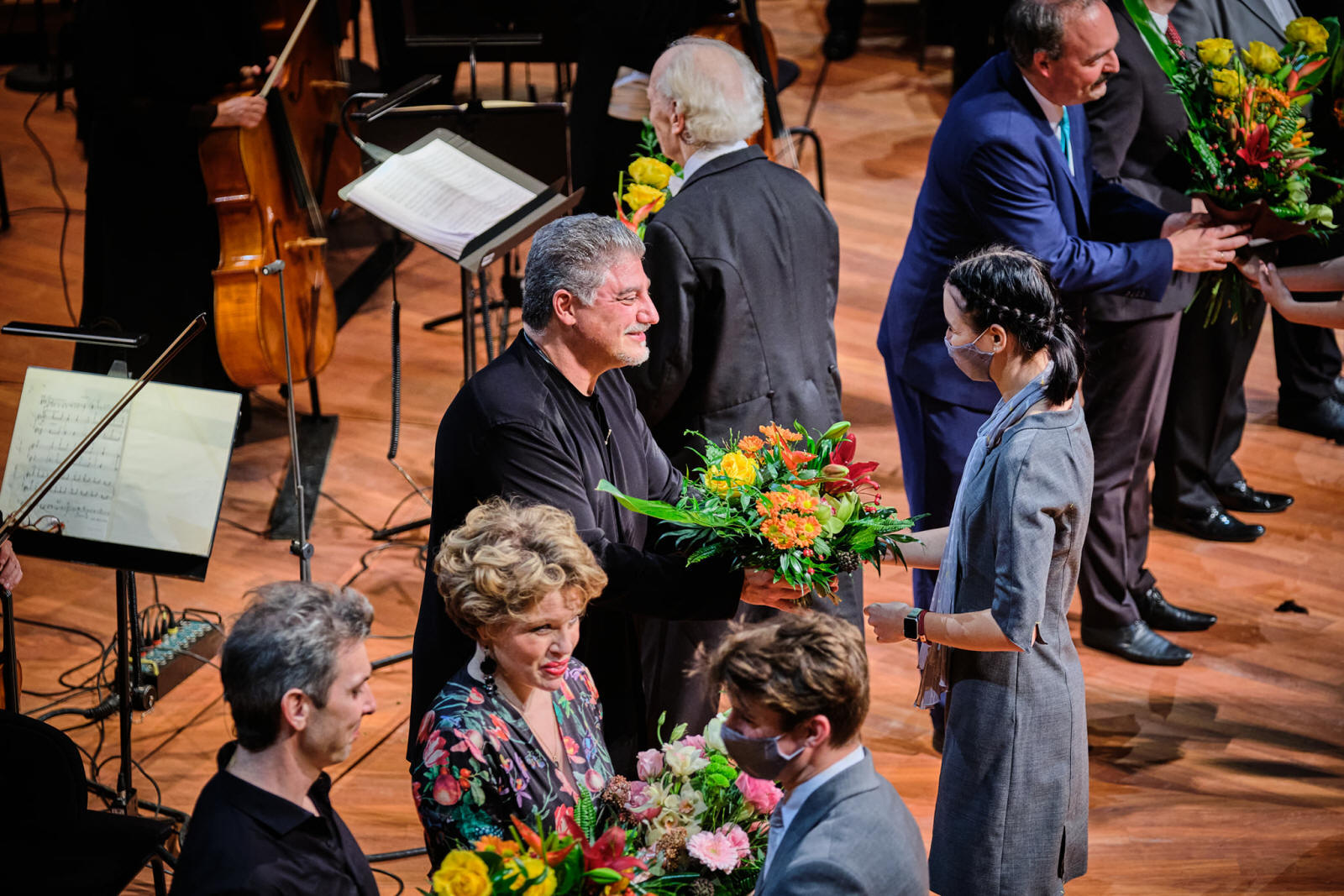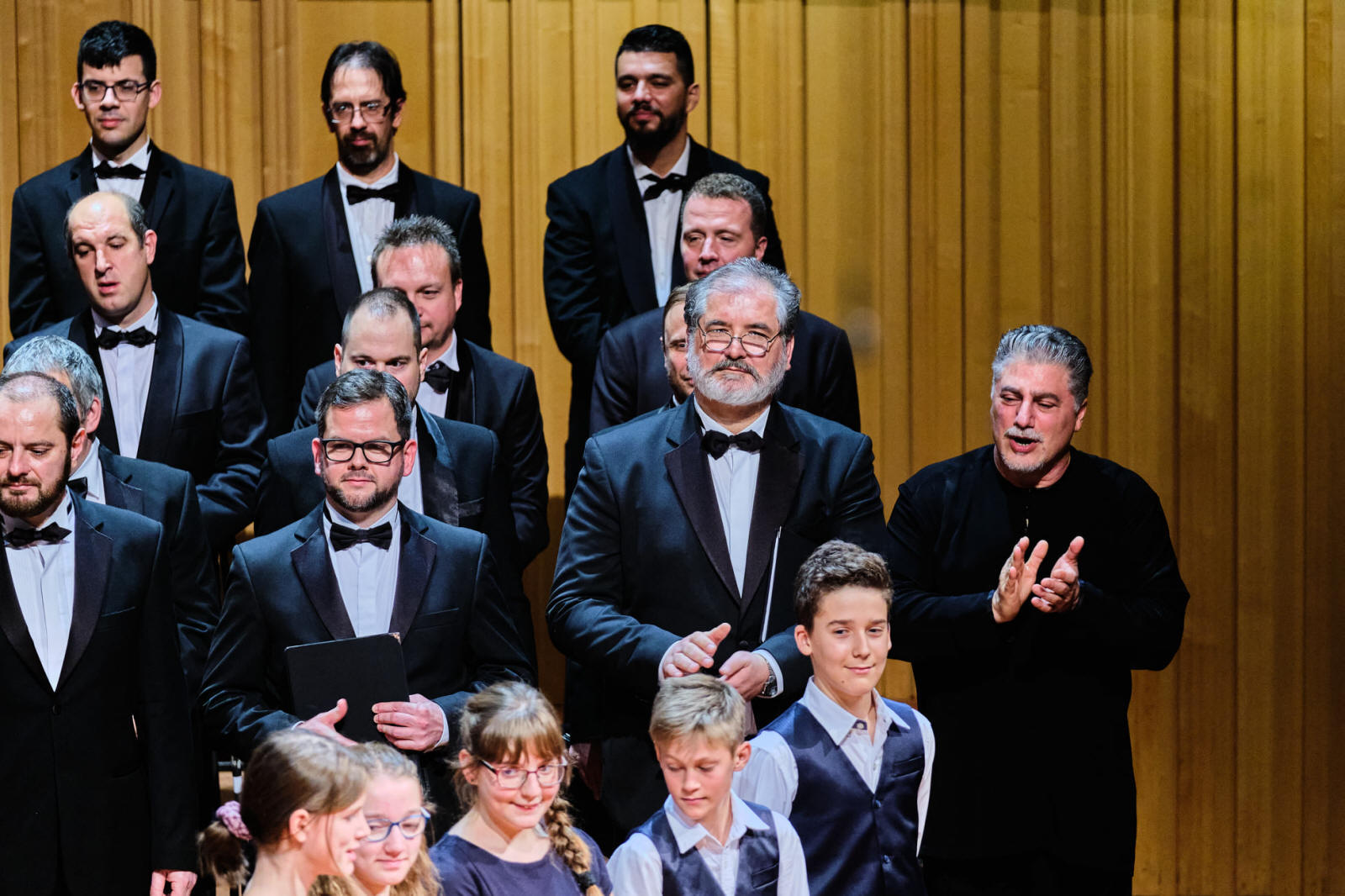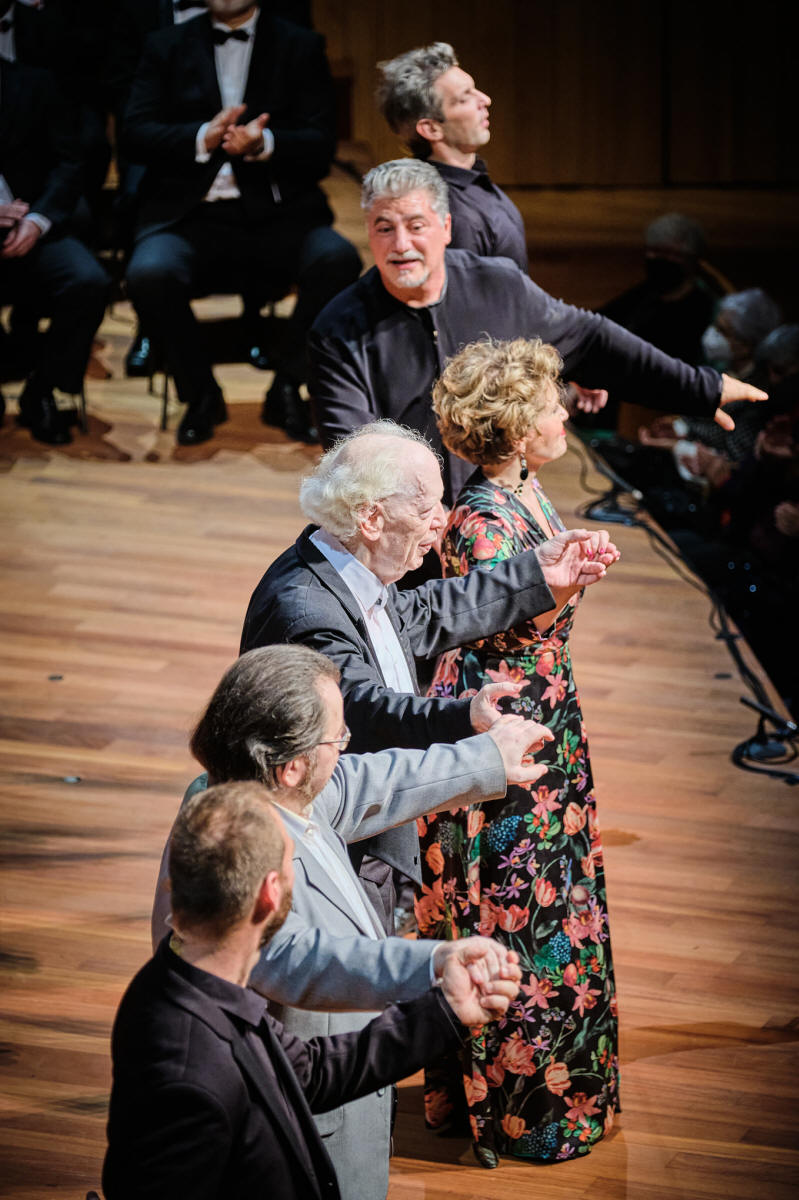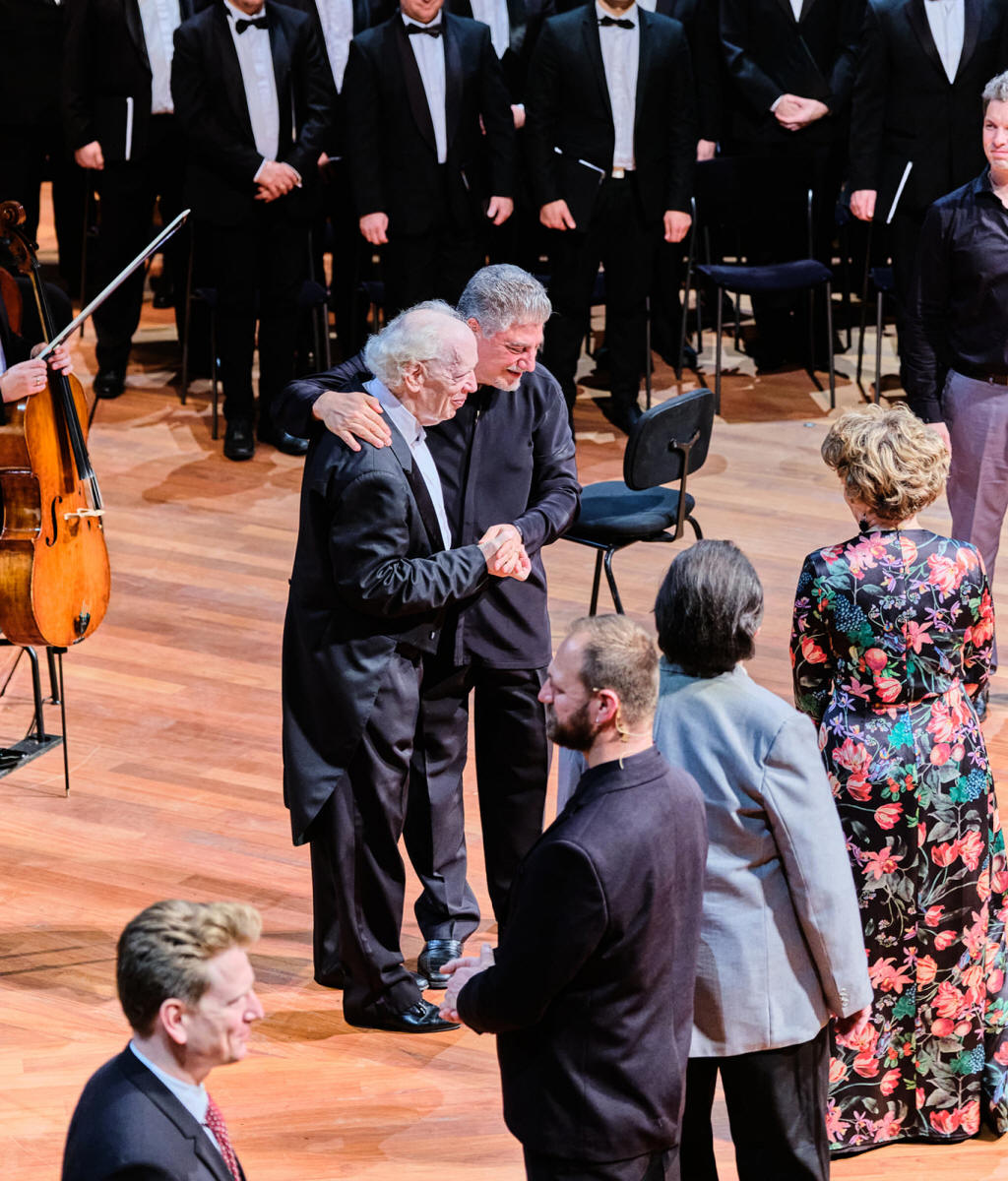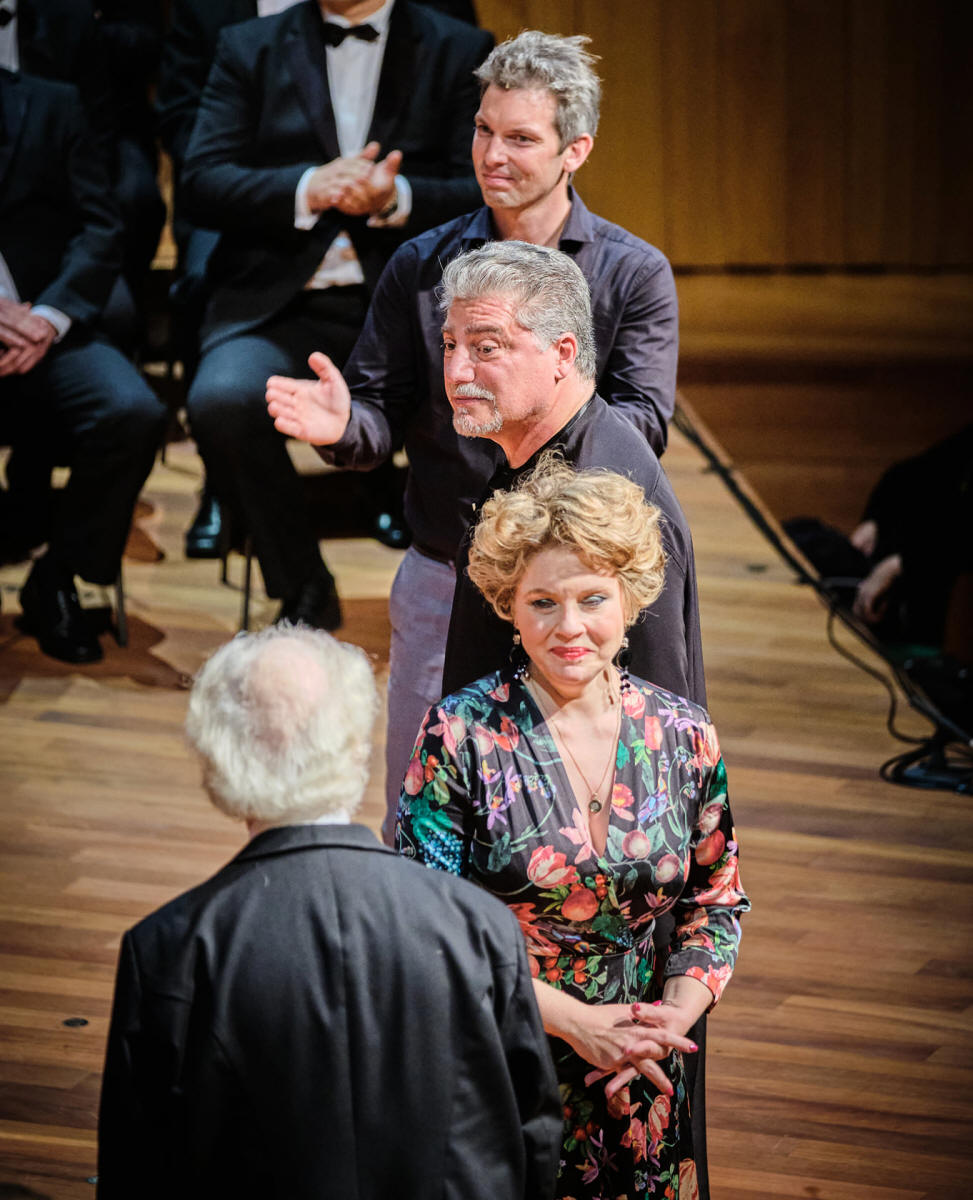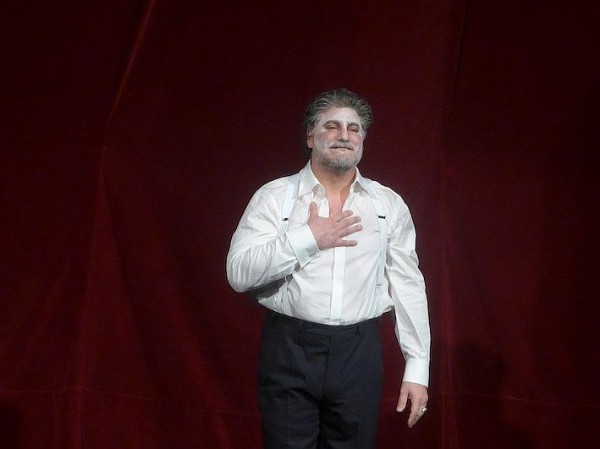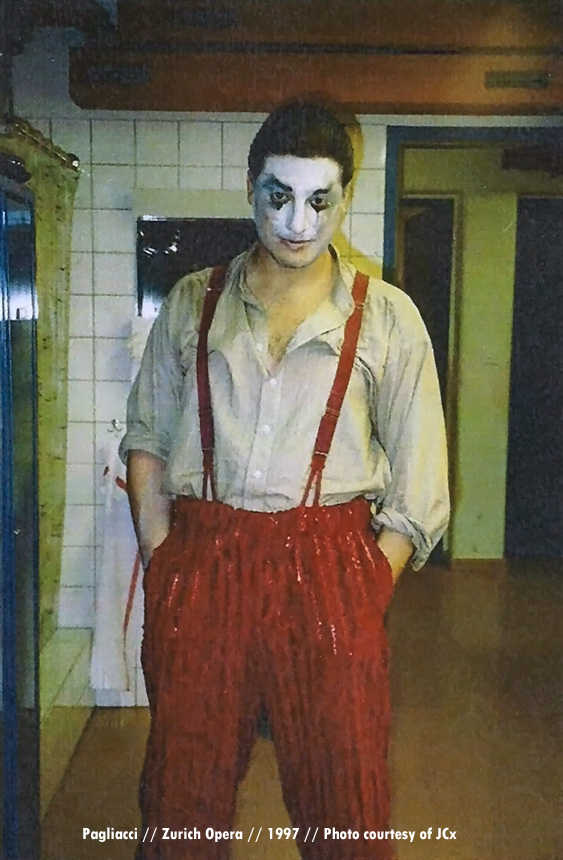|
– What was your motivation for the 3-year-long collaboration with
the Hungarian Radio Art Groups?
– It was love at first sight! When I first collaborated with them
many years ago, we performed Zoltán Kodály’s Te
Deum and Gioachino Rossini’s Stabat
Mater. During our second collaboration, they performed my
own music. If somebody shows so much love and interest in your own
music, then the degree of emotional compromise is higher. At the end
of the second concert, we were so touched by the nice experience
that I was invited to join them as their Principal Guest Artist.
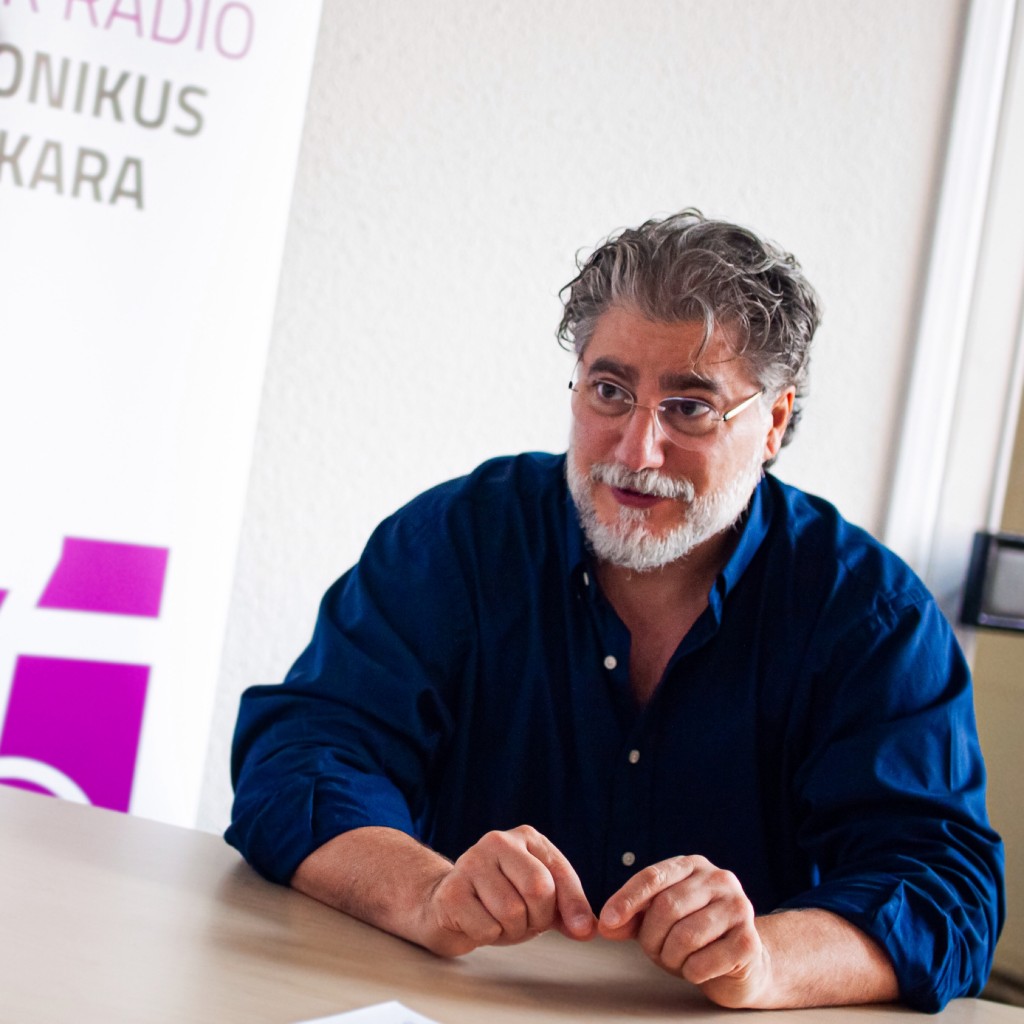
– What factors did you consider when planning the programme of the
season? In fact, who chose the music pieces? For example, Verdi’s Messa
da Requiem?
– No, no, I didn’t choose any of the music pieces. Usually, an
orchestra has a programme to be fulfilled. When they invite me, they
say: “We
can do this, this and this. Which of these can you do? For which of
these are you free? Which of these are you willing to do?”
I may put my opinion on the programme scheduled for 2022 or later;
however, if the programme is scheduled for 2019, you cannot change
it for it is too late. In the present case, Requiem is
one of my favourite pieces, and Verdi is one of my most beloved
composers, so I said yes immediately.
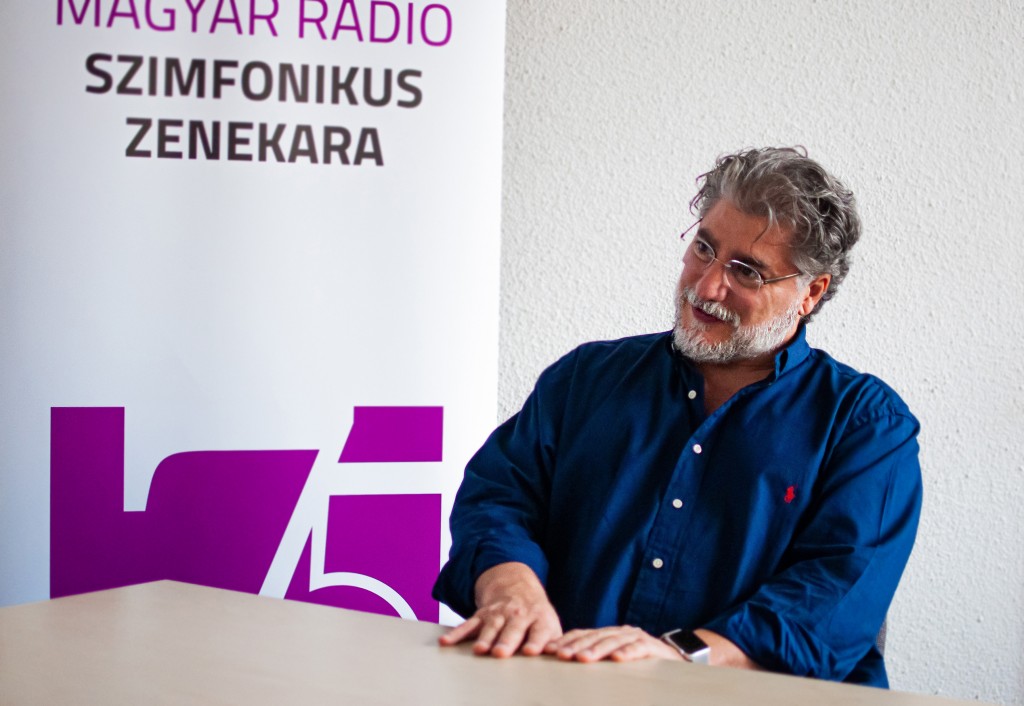
– Despite having graduated as a conductor, you have gained
recognition as an opera singer and have taken the stage the most as
an opera singer. What challenges and difficulties do you face as a
conductor?
– The compromise is completely different when you are an opera
singer. As an opera singer you are responsible mainly for yourself –
if you are good, the quality of the whole thing grows; and if you
don’t do a great job, the blame of your performance will go just on
you. However, as a conductor, you are responsible for everybody;
therefore, the degree of responsibility is higher and when things go
wrong, you just cannot detach yourself from the overall
responsibility. In the conductor’s case, the intellectual pressure
is bigger, while in the singer’s case, a simple health problem can
jeopardize your whole work. As a conductor, you don’t care whether
it is cold or raining – you focus only on your job, and there is no
such kind of pressure. Now, while the conductor is in charge of the
whole performance, he needs to learn how to rely on his musicians,
as well as the musicians need to feel they are in safe hands. Very
easy to say, but not so easy to achieve. It is a rare chemical and
technical formula.
– During the rehearsals, do you happen to teach the soloists based
on your technical knowledge, or do you focus only on the conducting?
– There is nothing more unpleasant than a non-requested advice.
Therefore, instead of teaching I make suggestions such as: “If
I were you, I would solve the problem like this.” or “If
my experience is useful for you, use it, or else, show me your idea.”.
It may be advantageous for a singer to have a person in front who
knows exactly what he, the soloist, is going through and what he
needs. Should the soloists not follow my advice, I will not be angry
at all. I am dealing with professionals, good professionals, not
just beginners or students!
– Since you are a highly recognised singer, how do you manage to
instruct the soloists without making them feel you are criticizing
or offending them?
– Only the mediocre people take a piece of advice as an offense. If
you are a “healthy minded” person, you understand the person is
advising you because he has been in your place before and knows what
you are going through. If a soloist takes advice as an offense, then
his problem is not to fix that particular technical situation, but
to fix his psychological complexes first!
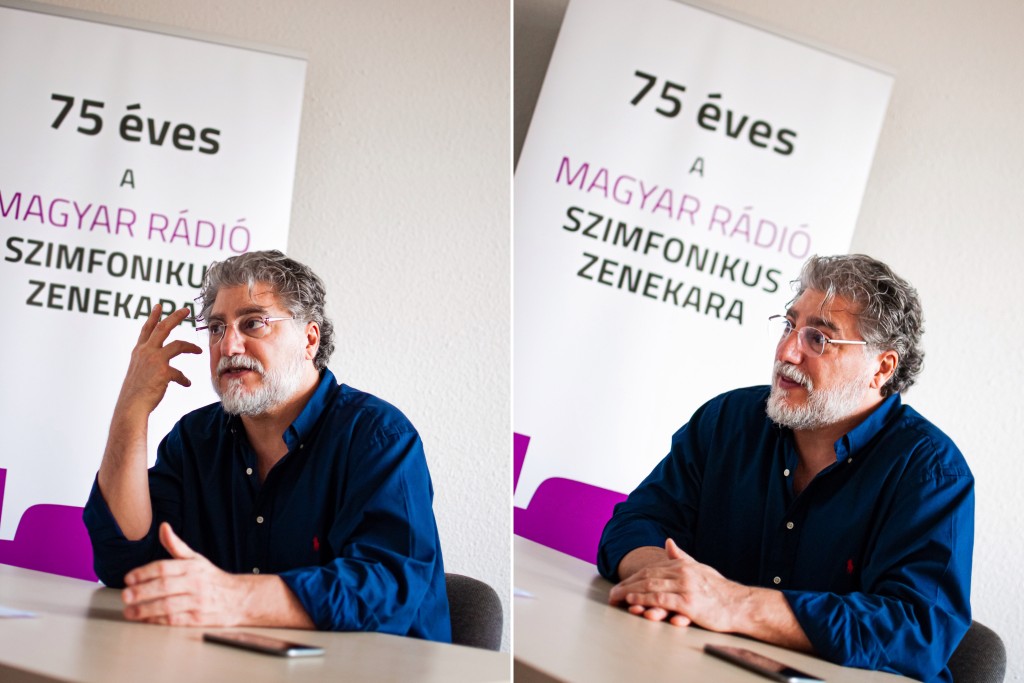
– When you are invited to sing at an opera house, do you have the
power to decide whom you want to sing with?
– No, normally this doesn’t happen. When it is a big project such as
a movie, of course, there is a conversation about how to combine all
the great elements in order to have the best possible product.
However, in case of a normal performance in the season of an opera
house, you just work with the colleagues you encounter. In my
opinion, it is great to meet new people all the time and make new
experience by working with them. If you always sing with the same
three or four singers whom you are happy with, you may be losing a
whole universe of experience. Along the way you meet a lot of
different people: from some people you absorb the good and from
others you may learn what not to do. If you are wise, you can not
only enrich your “luggage” with good experience, but also learn
which things you have been uselessly carrying and remove them from
your luggage.
– Do you prefer classical production to modern production?
– I prefer intelligent. I don’t care if it is modern or old, I just
like productions which are intelligent. There are a lot of
traditional productions that are really silly, and there are also a
lot of modern productions that are really interesting, And the other
way around, of course. It is like: “What
do you prefer? Rembrandt or Picasso?”
My answer is: “Listen,
I prefer geniuses, and both of them are geniuses. That is the point!”
A good director with something interesting to tell can do a good
show regardless the production is modern or traditional. A bad
director will create a bad show in any case.
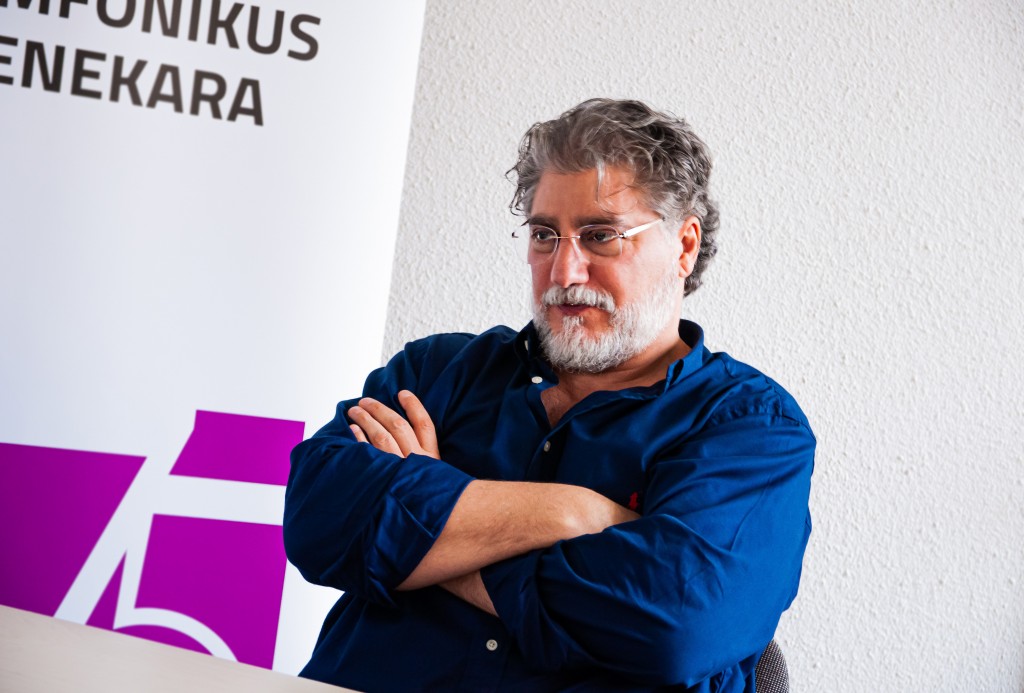
– You are considered the most authentic performer of Verdi’s Otello and
Saint-Saëns’s Samson.
Did you intentionally pay special attention to these roles or is it
just by chance that these have become your iconic roles?
– First of all, I don’t think that I am the most authentic performer
of these roles, because there are a lot of singers who do an honest
job in portraying these two gigantic characters. However, it is true
that I have done with these roles what I have done with all of my
other roles: not what I was supposed to do… I went further,
scratching the soul of these characters to see what else I could
find there. One of the best reviews I have received in my life was
supposed to be a negative review. “This
damned habit Cura has of always doing what he wants, and not what he
is expected to do”, a guy wrote after my Otello in
the Metropolitan Opera in New York. For me it was one of the best
reviews. While the critic intended to hurt, I believe this review
was literally shouting: “Cura is being an artist, not a hooker!”.
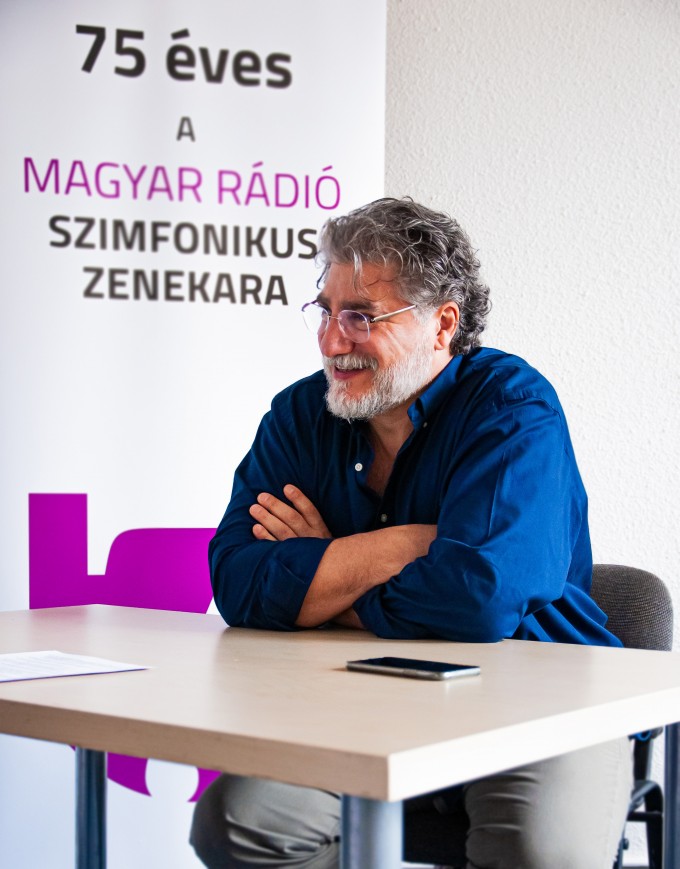
– How many times do you need to sing a role in order to know it
confidently and fully?
– Ugh,
a lot! People keep asking me what the difference is between my
first Otello in
1997 when I was only 34 years old, and my Otello now.
When I was 34 years old, they used to paint my hair white to make me
look older, and now they paint my hair black to make me look
younger. It took “those” many years to understand what the character
of Otello exactly
needs.
– If you had the chance to have a conversation with a historical
composer, who would you choose, and what would be your question to
such composer?
– I would, for sure, choose Bach and my question would be: “How
the hell did you do it?”. (Laughing.)
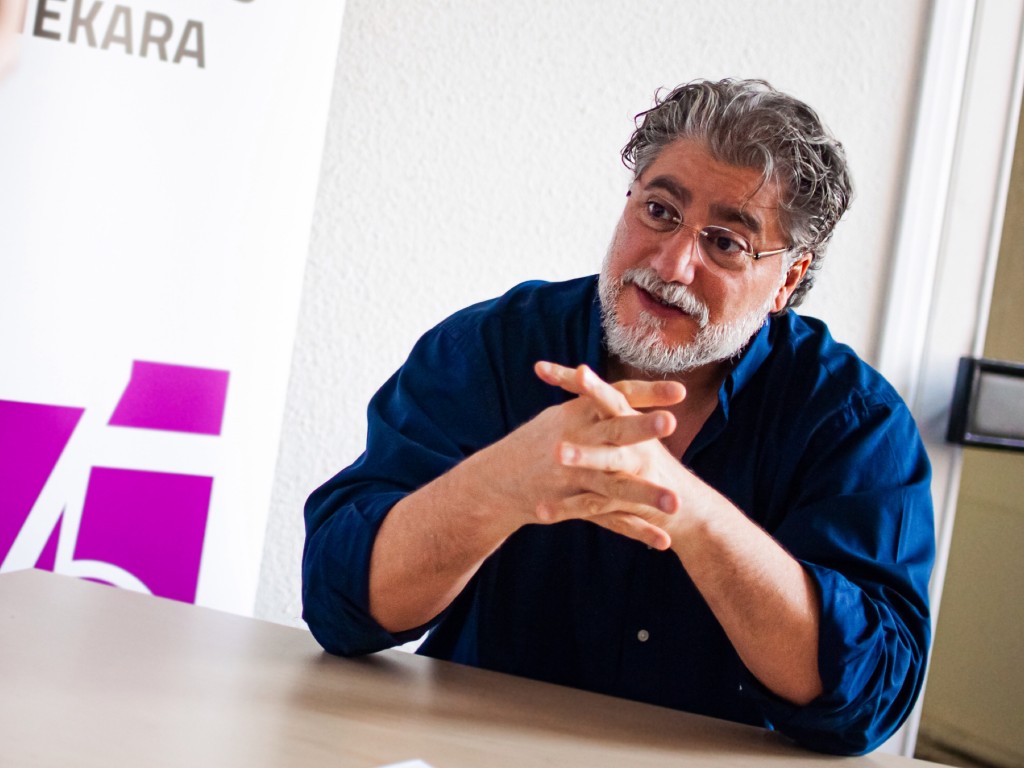
|
